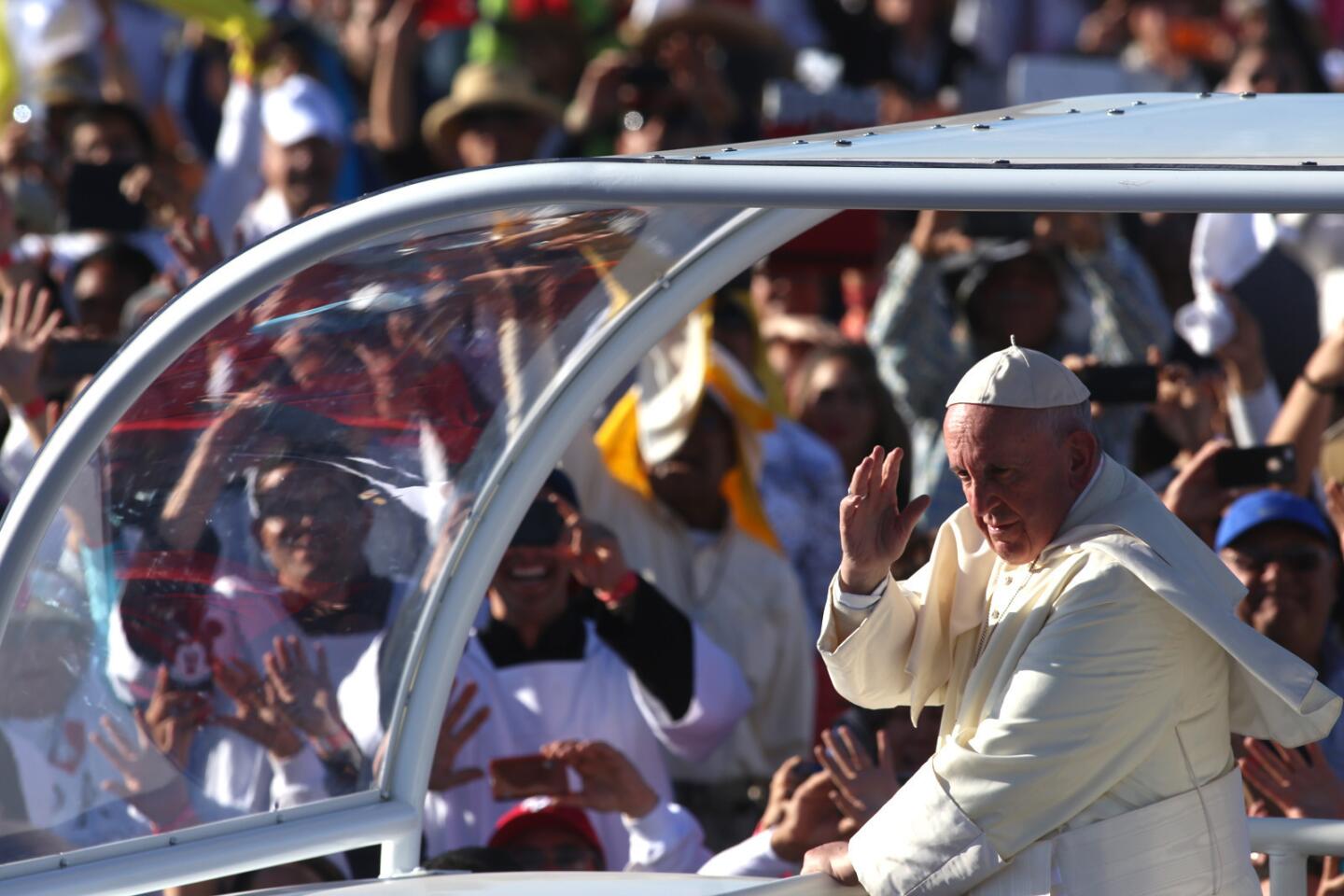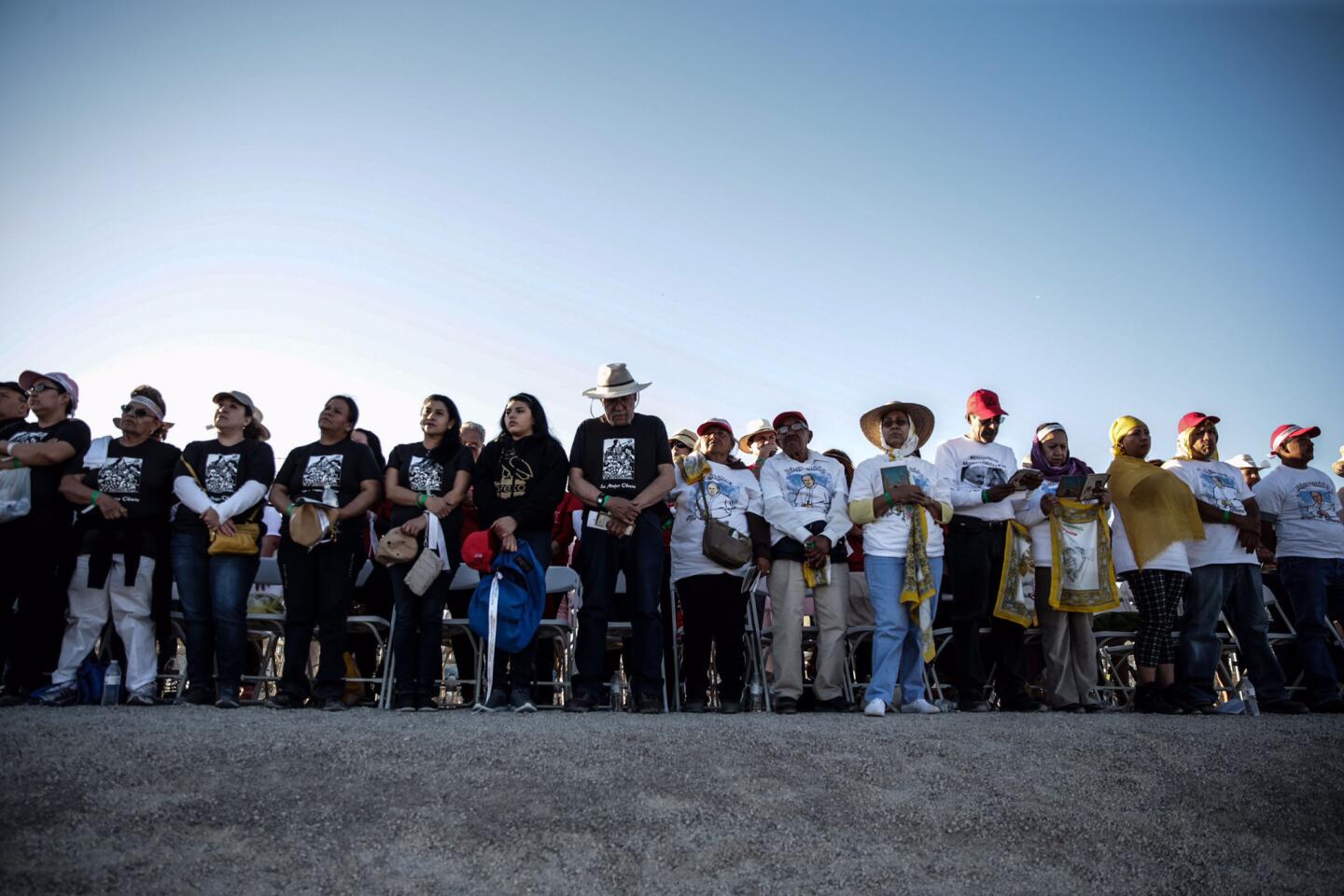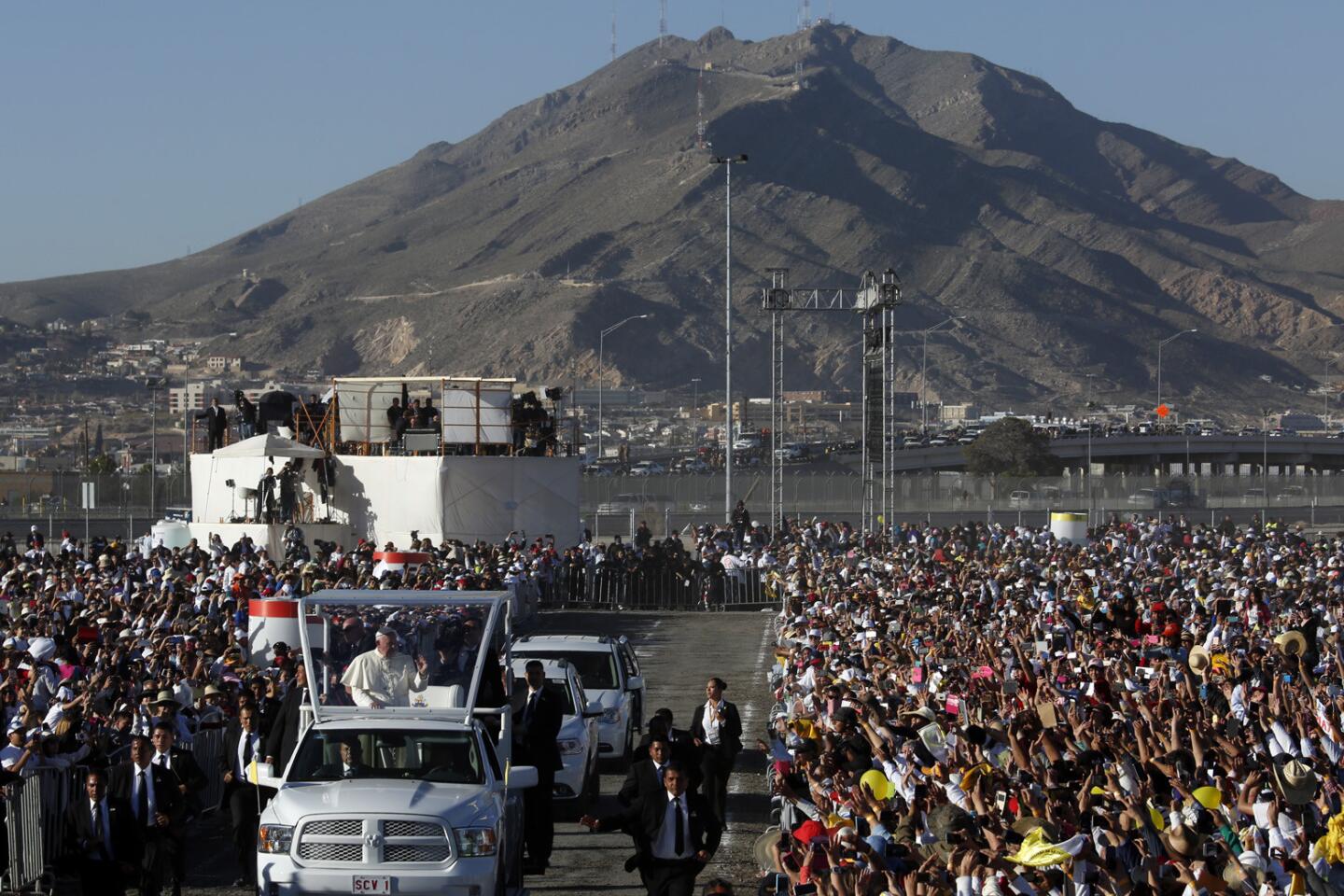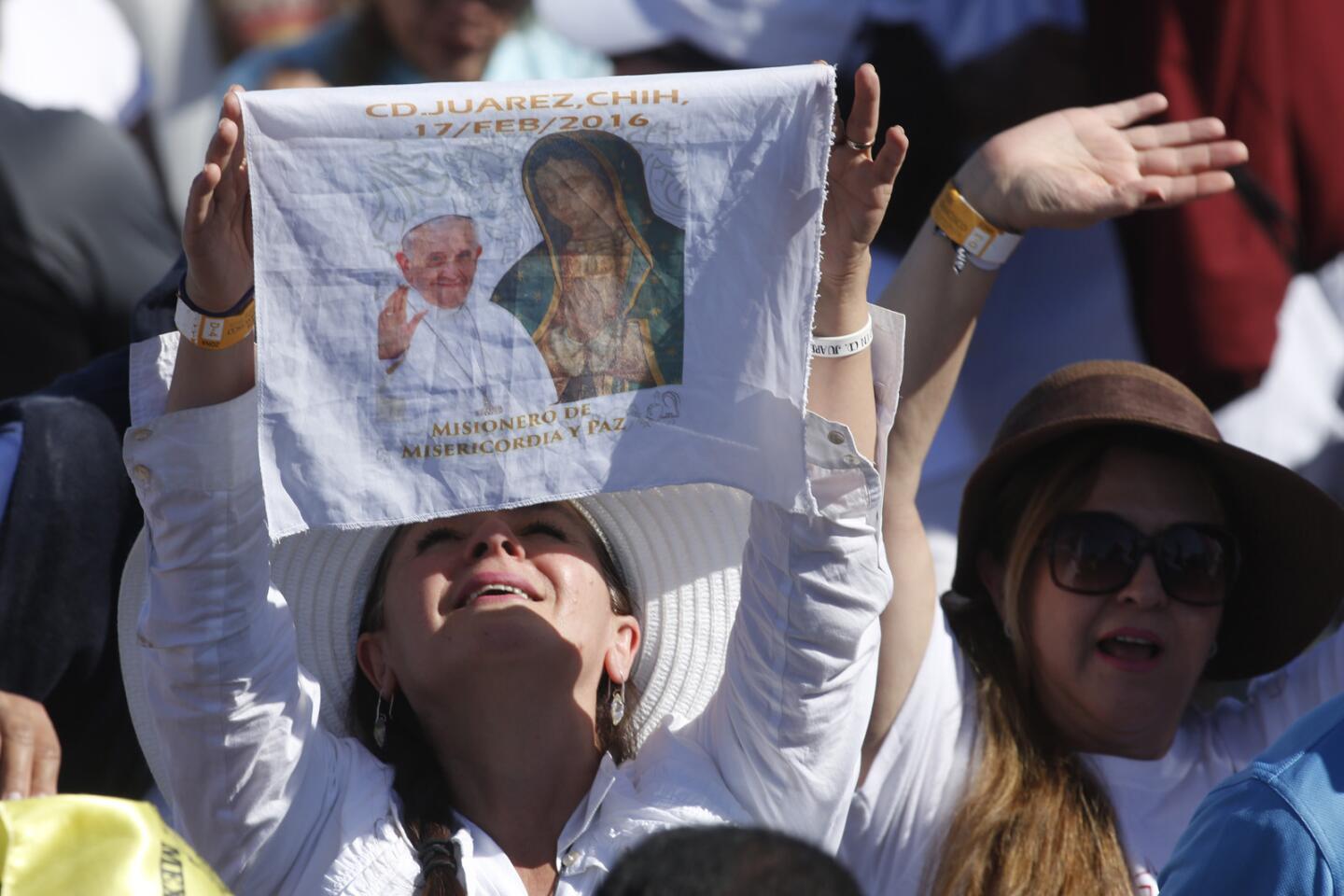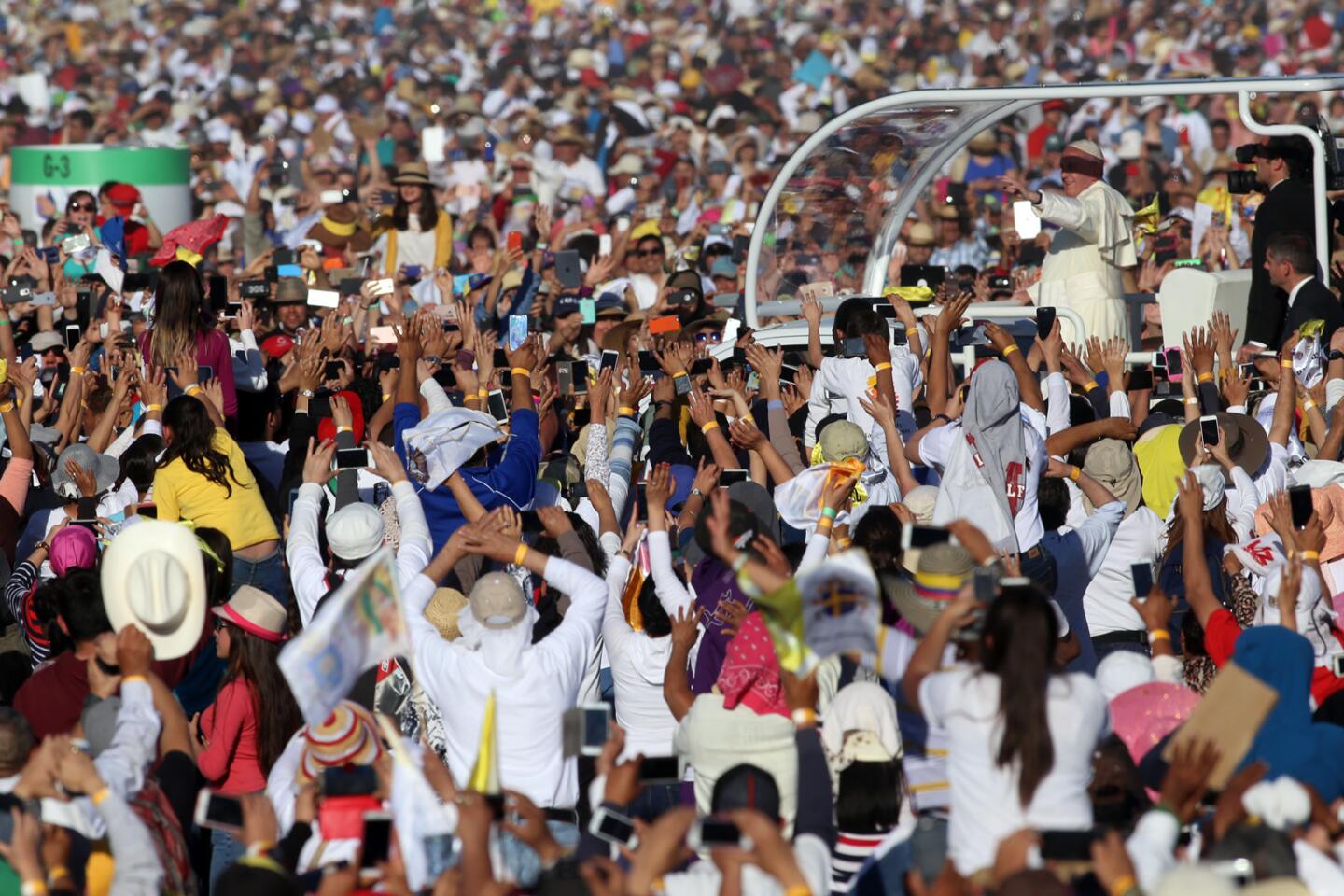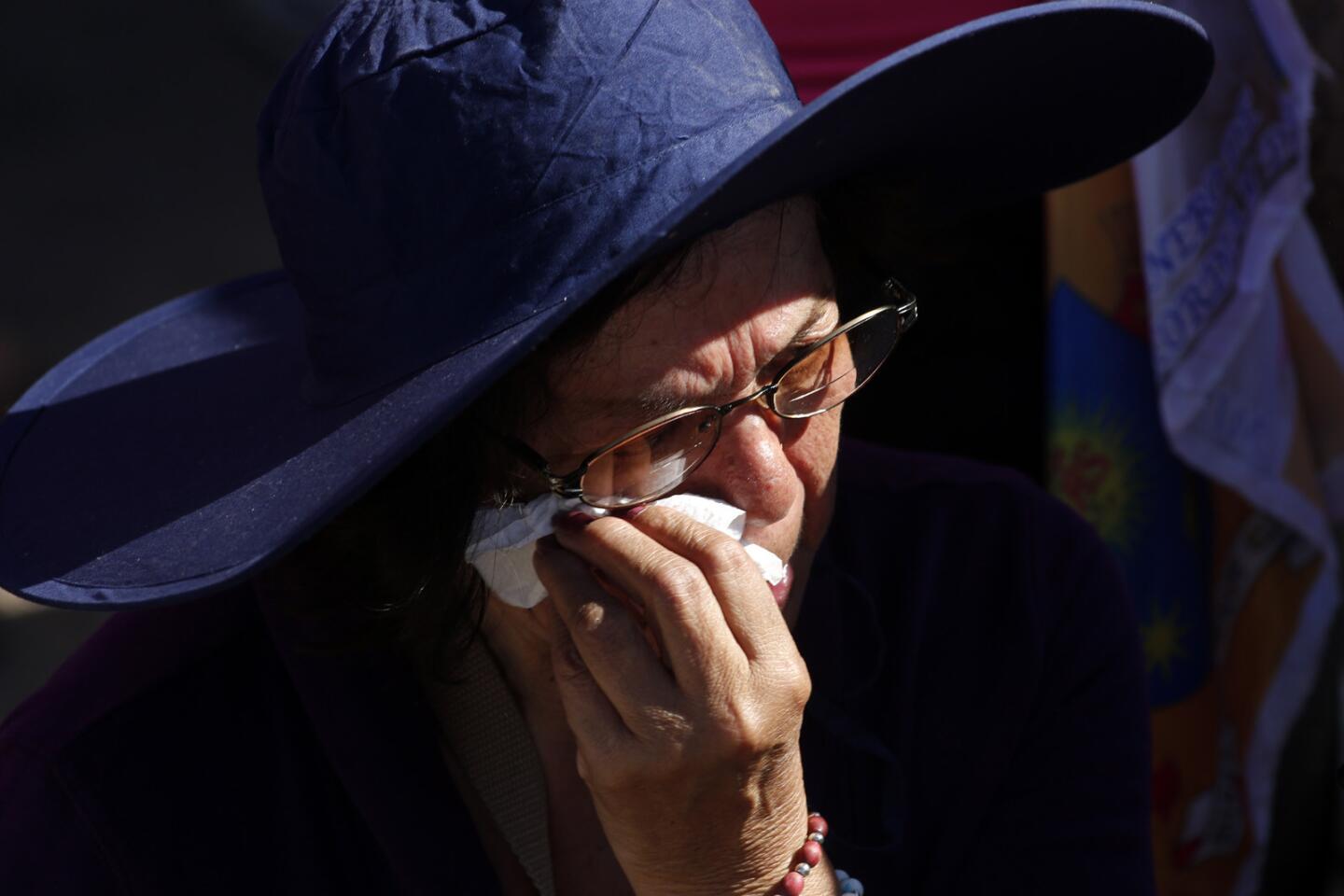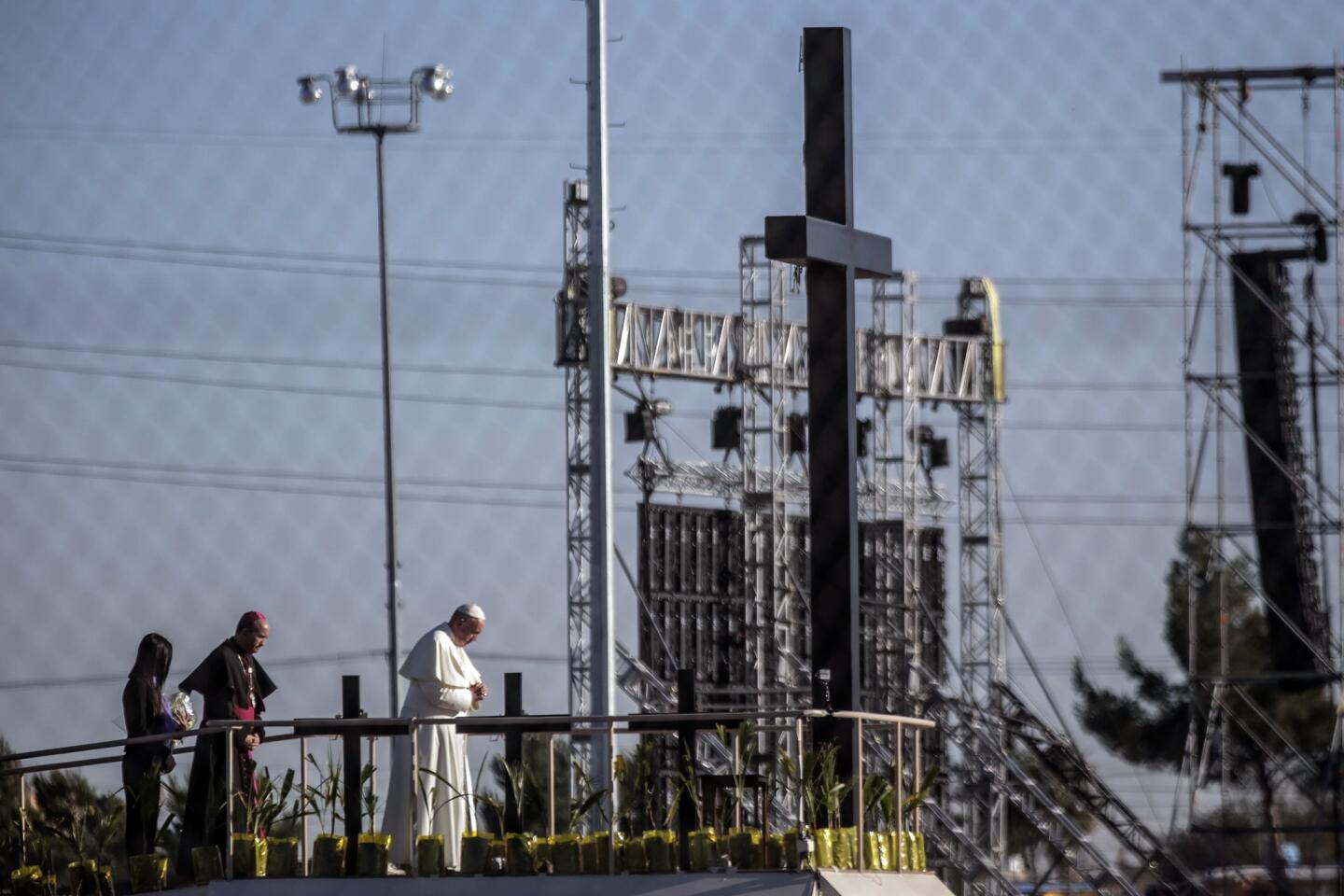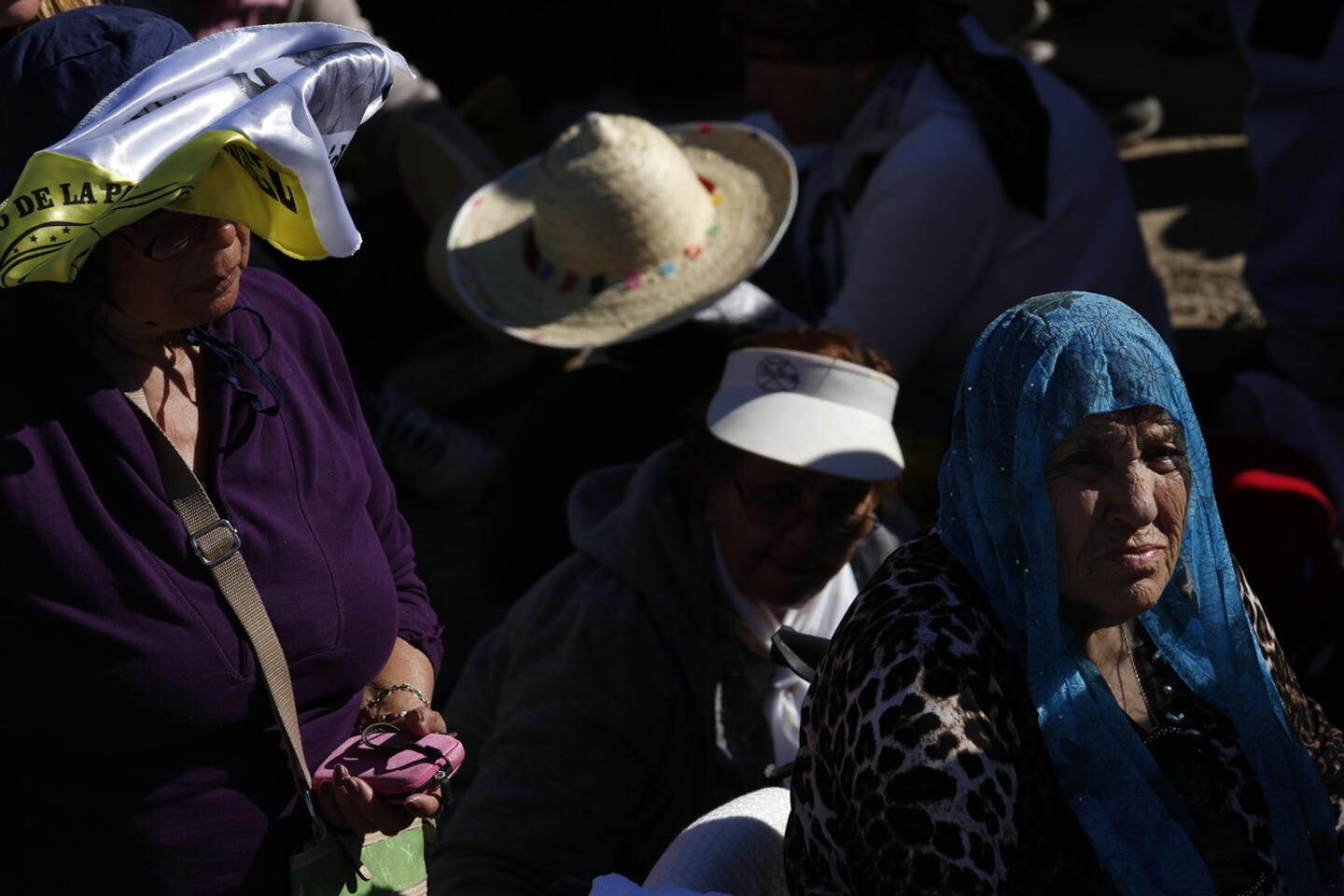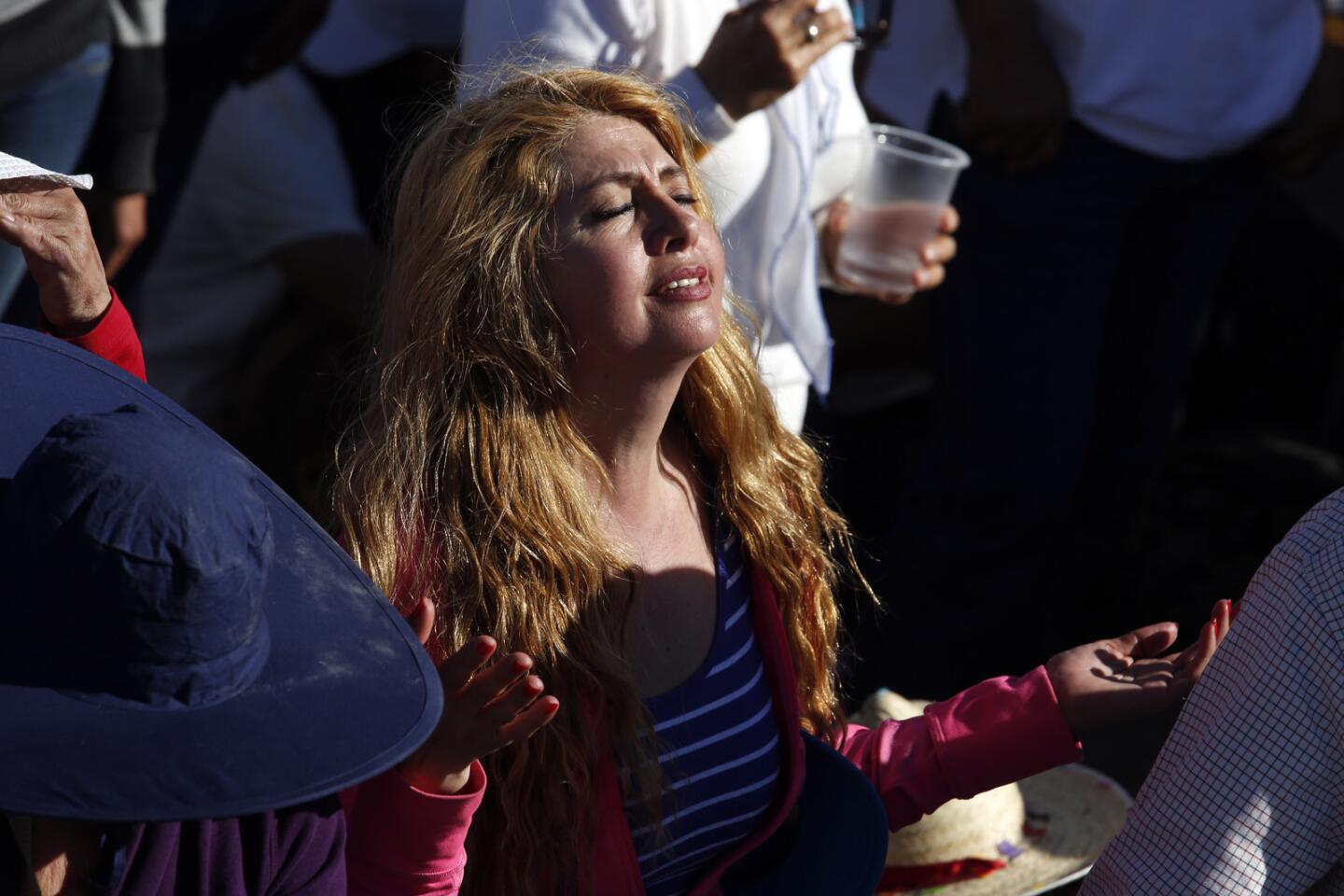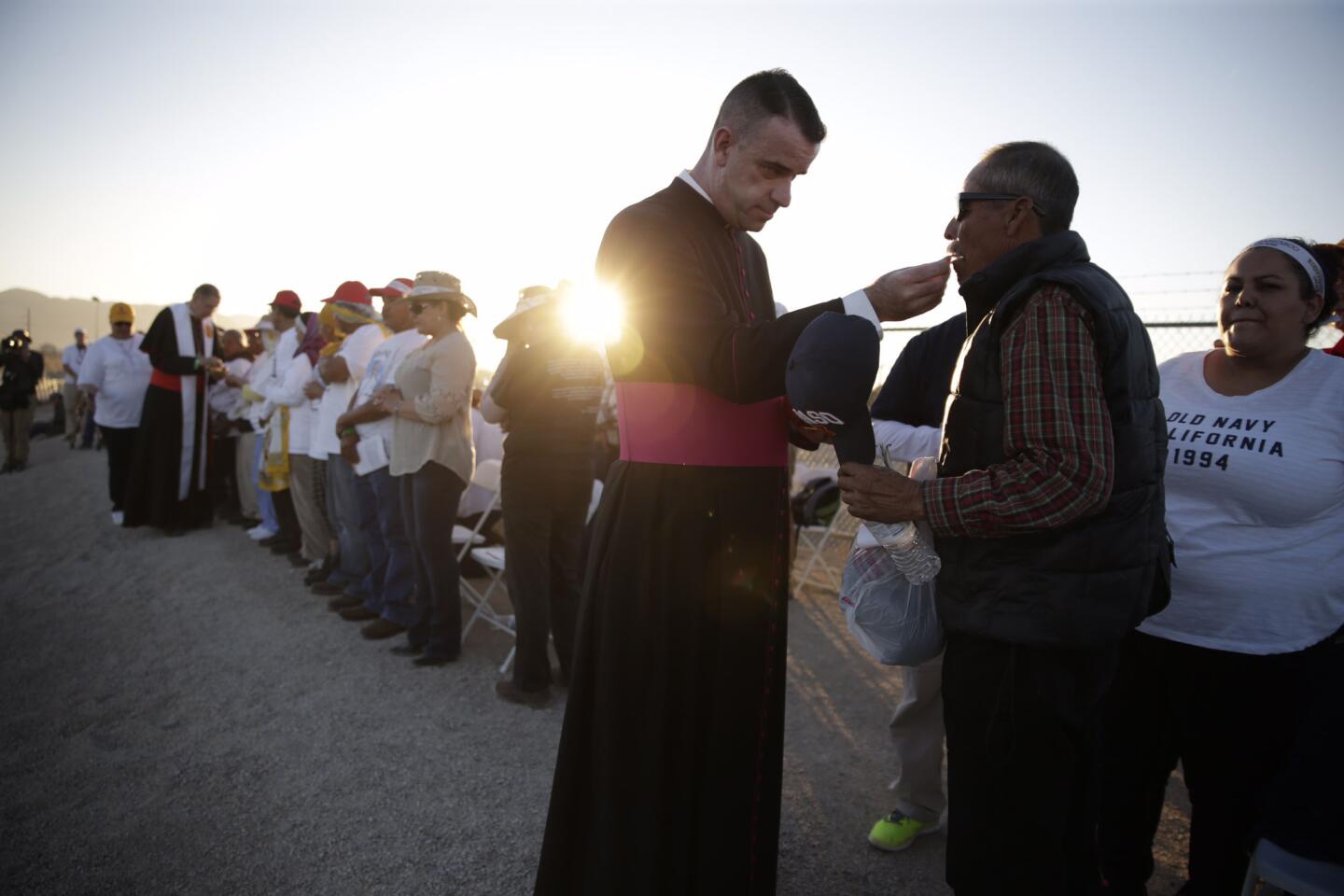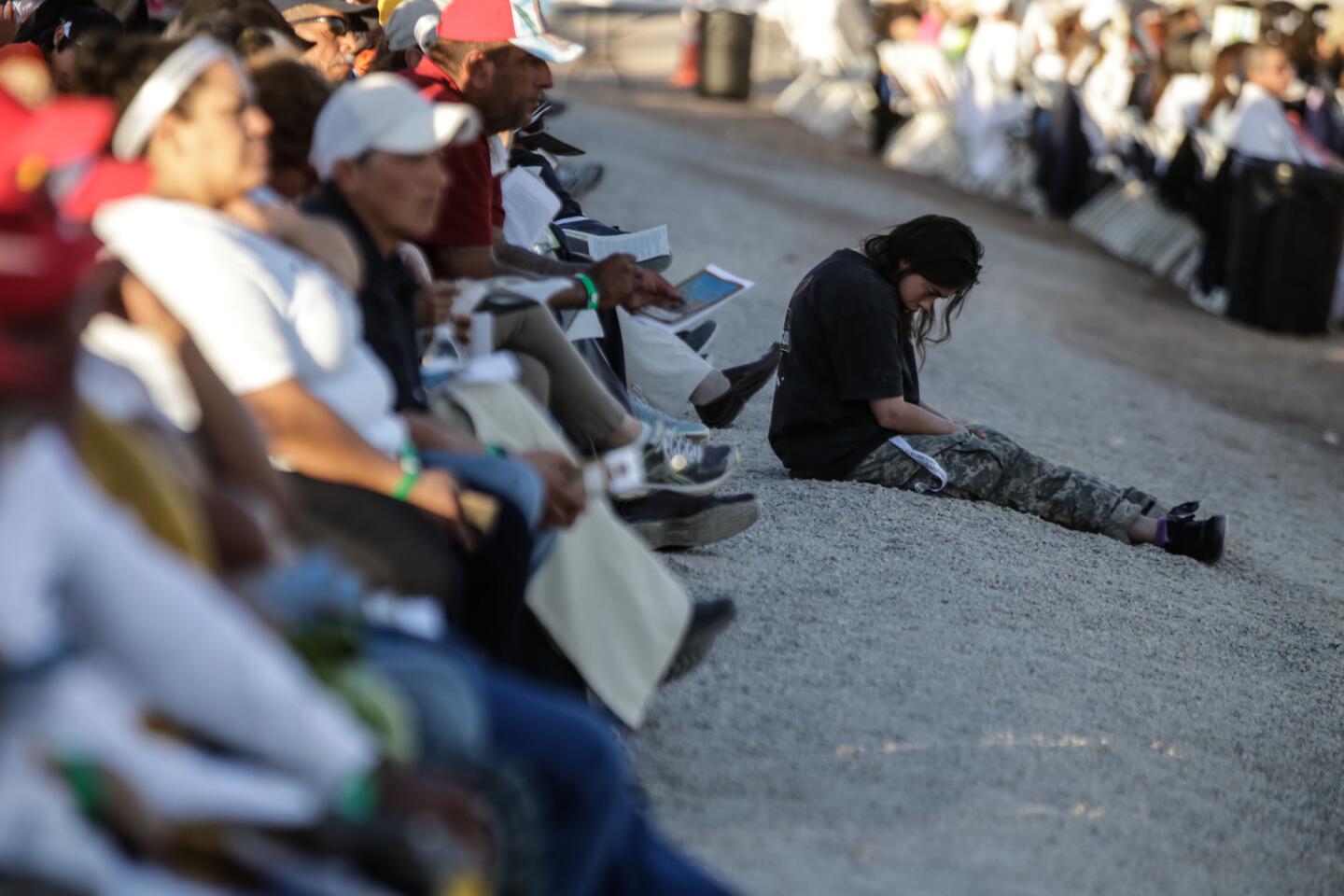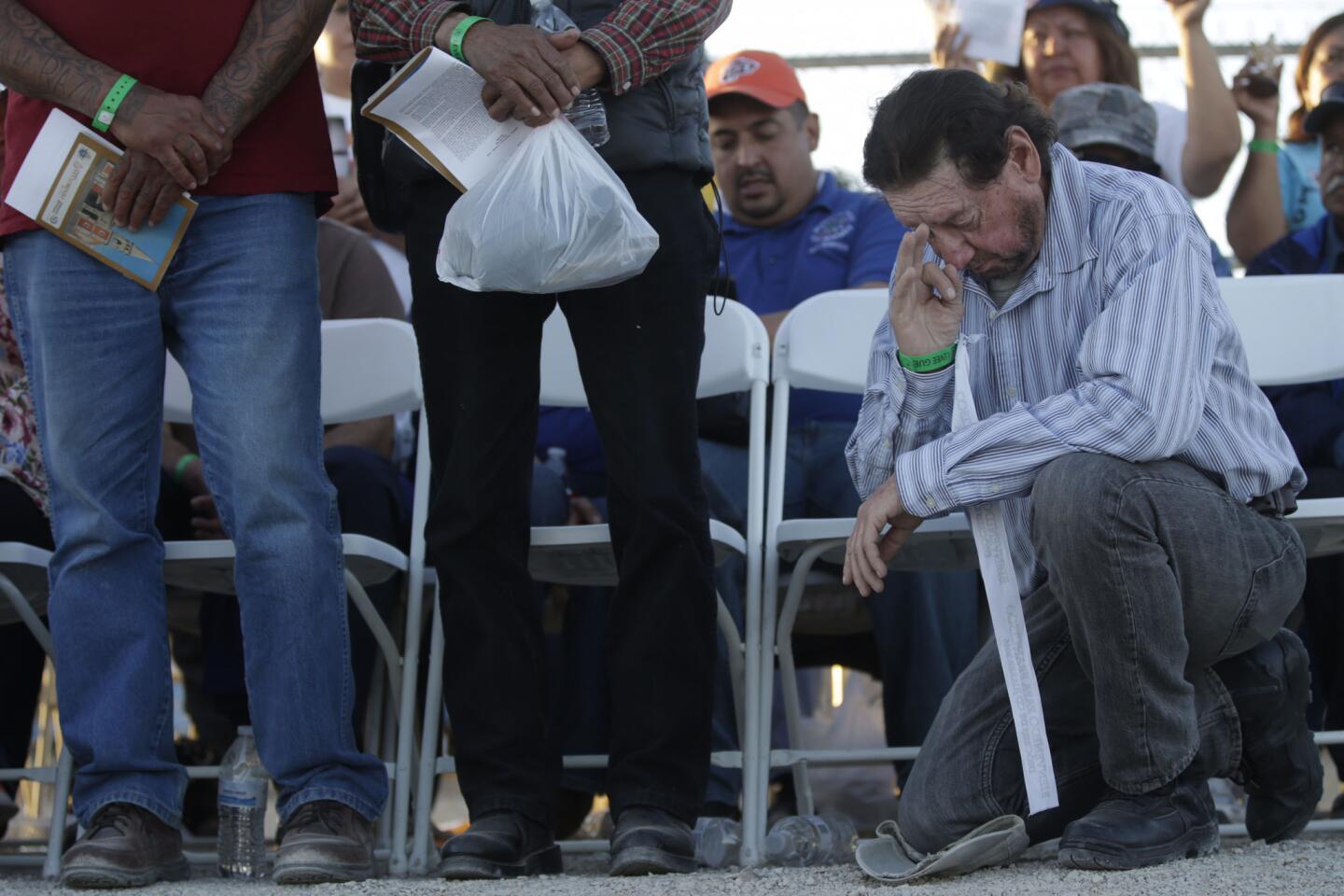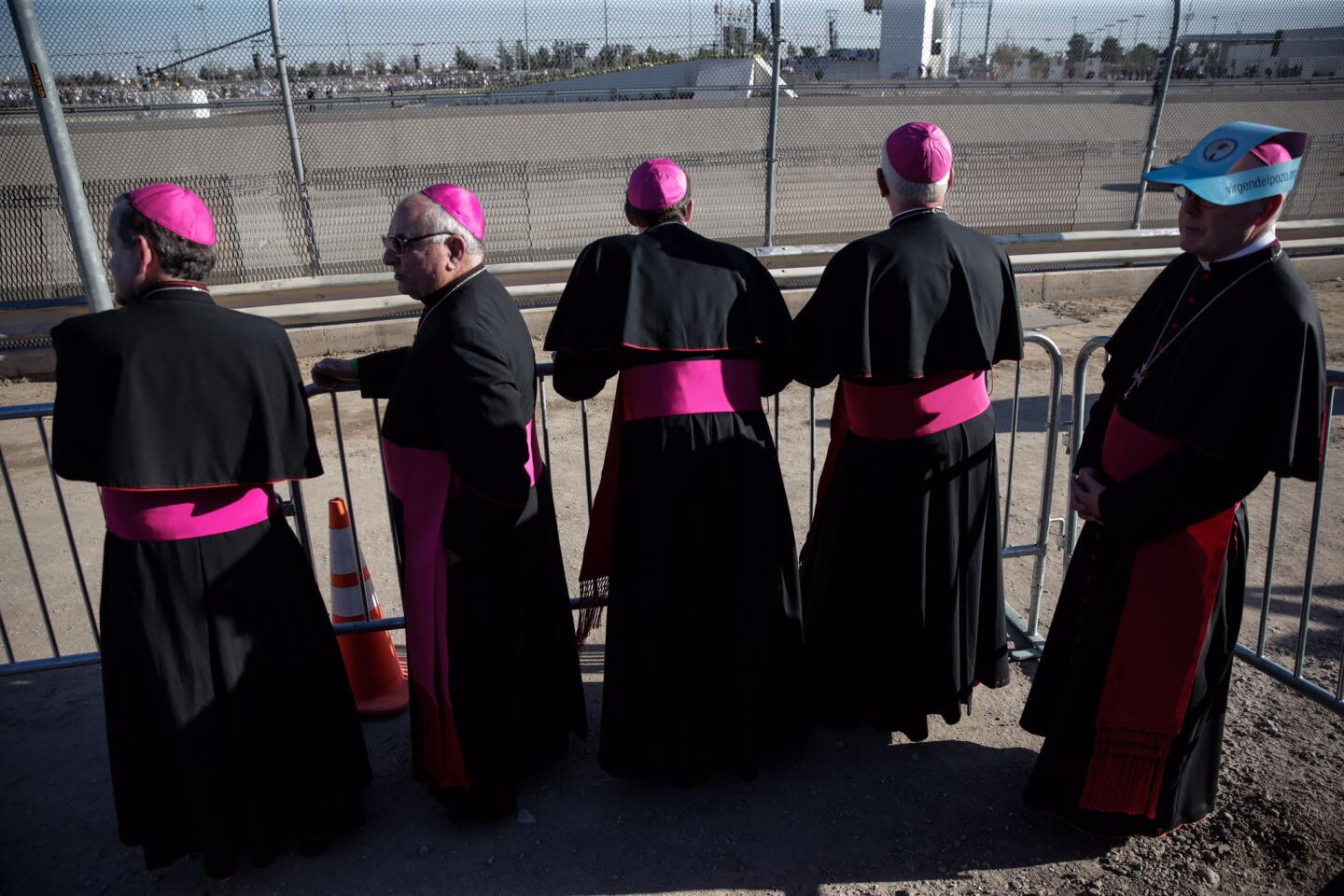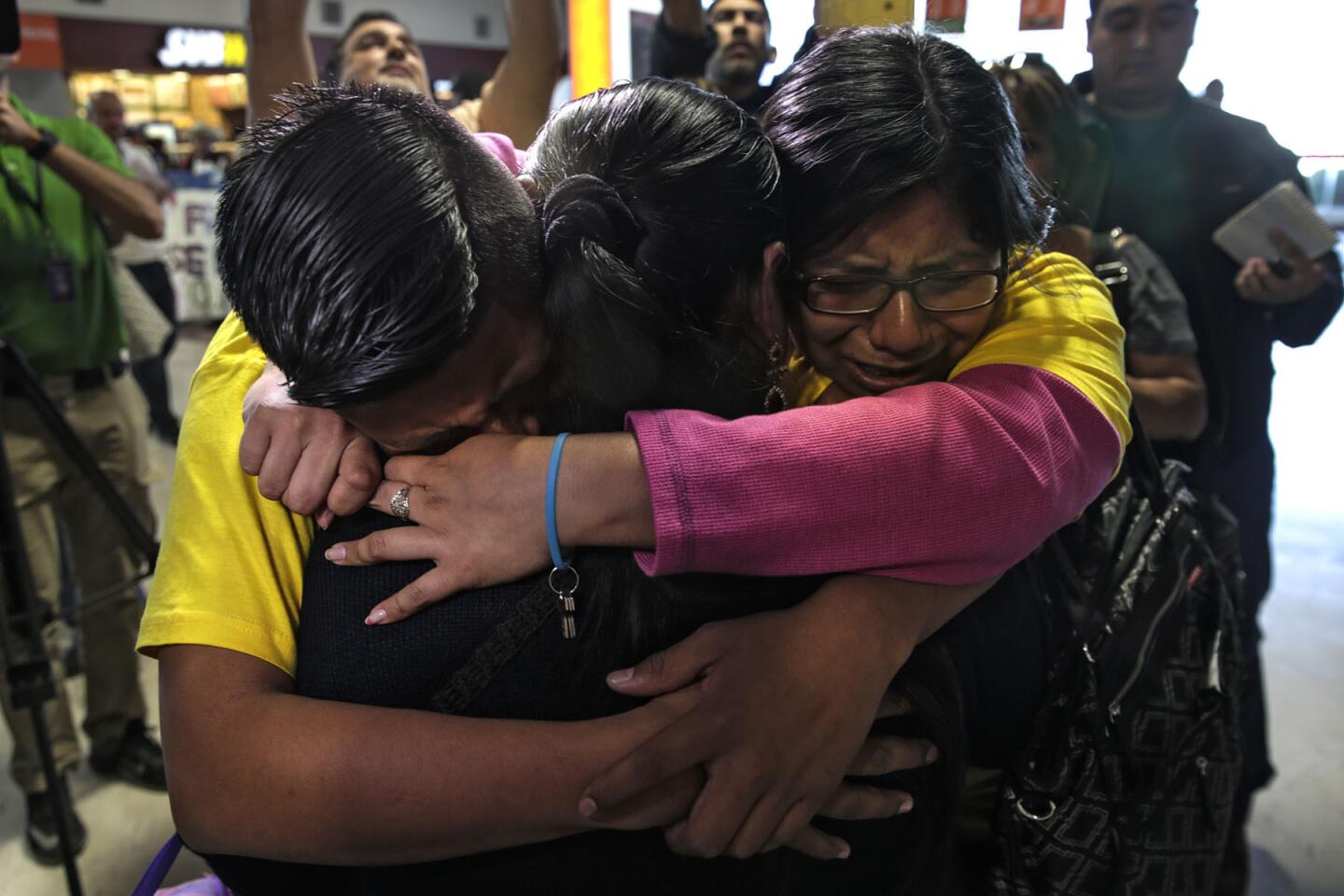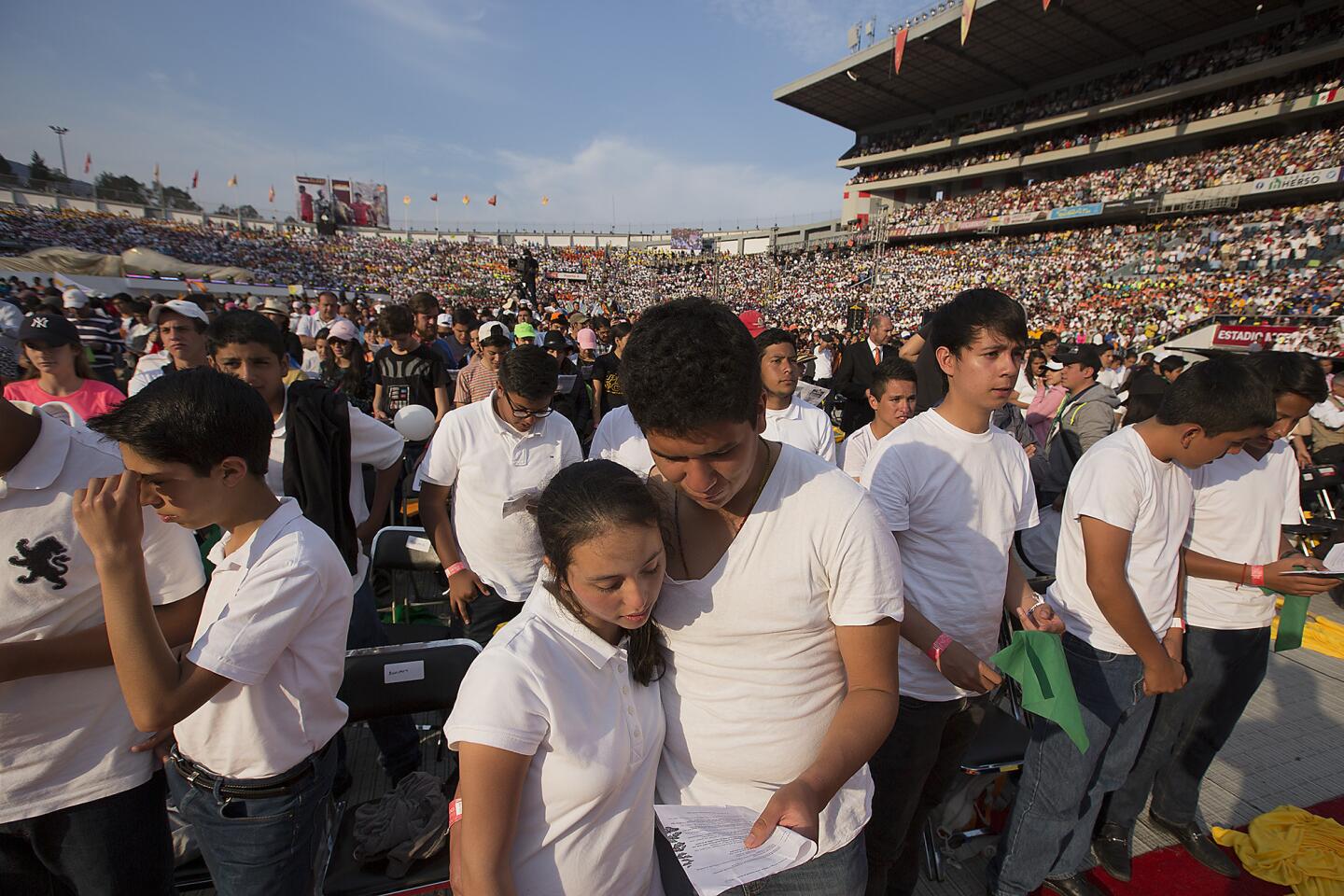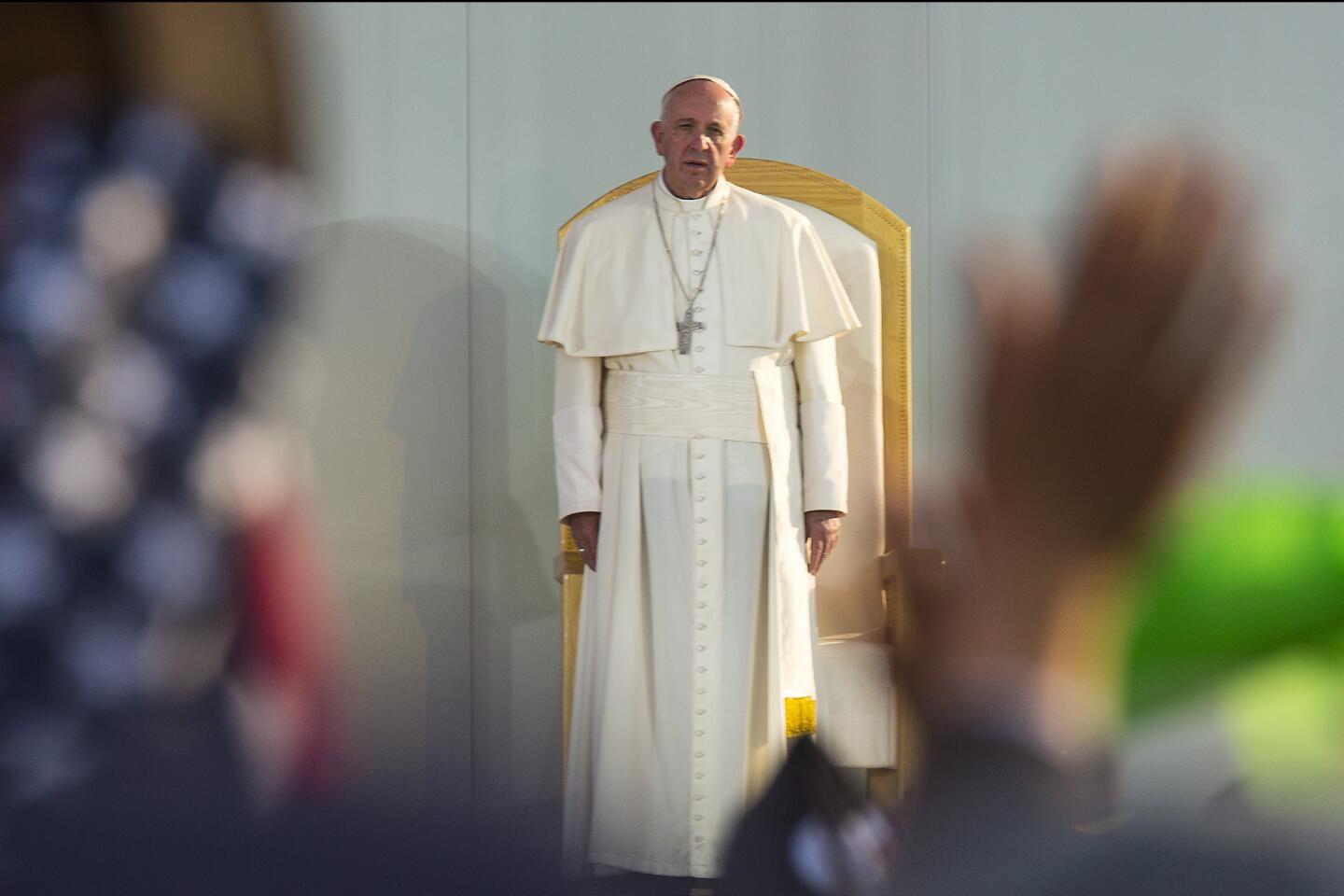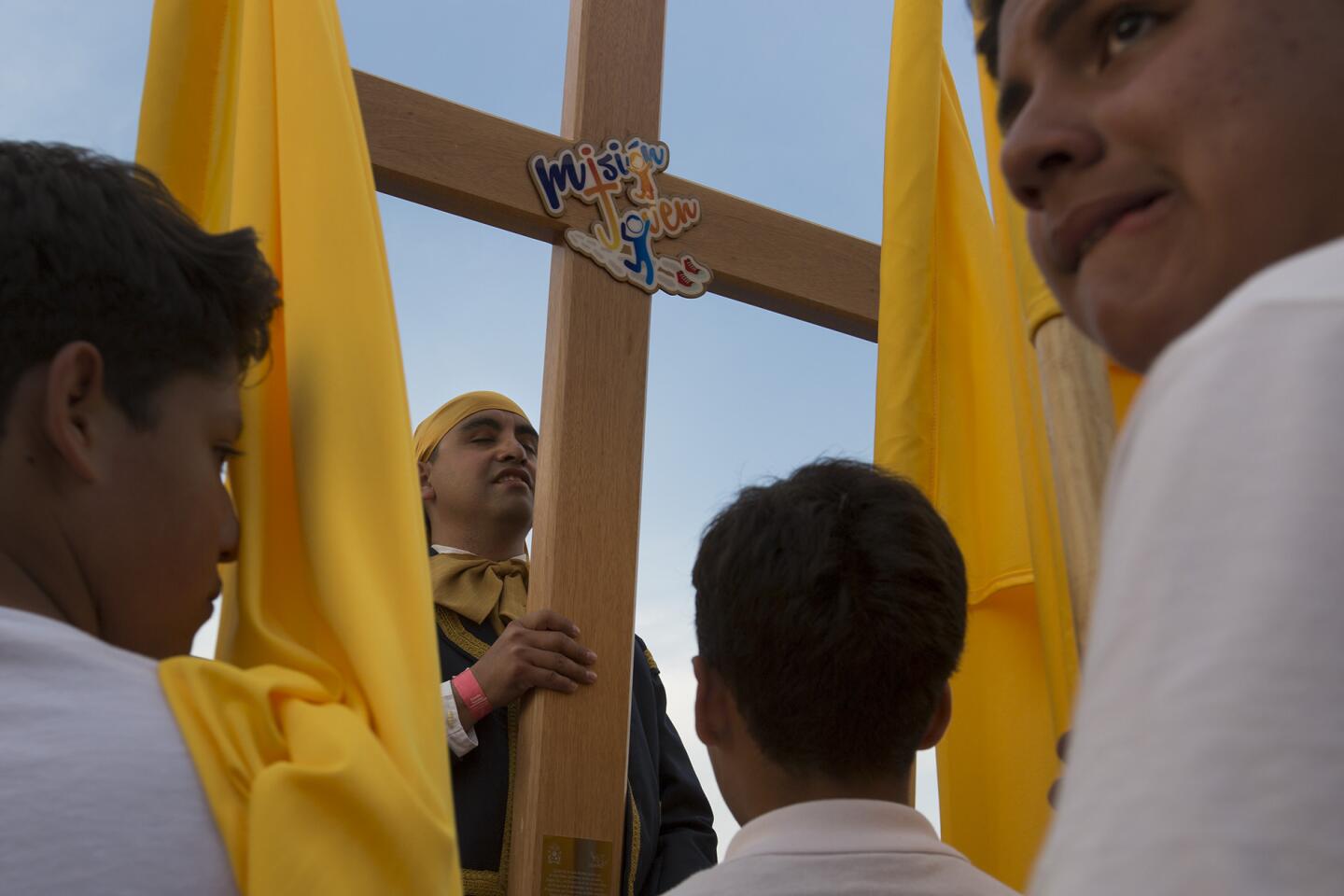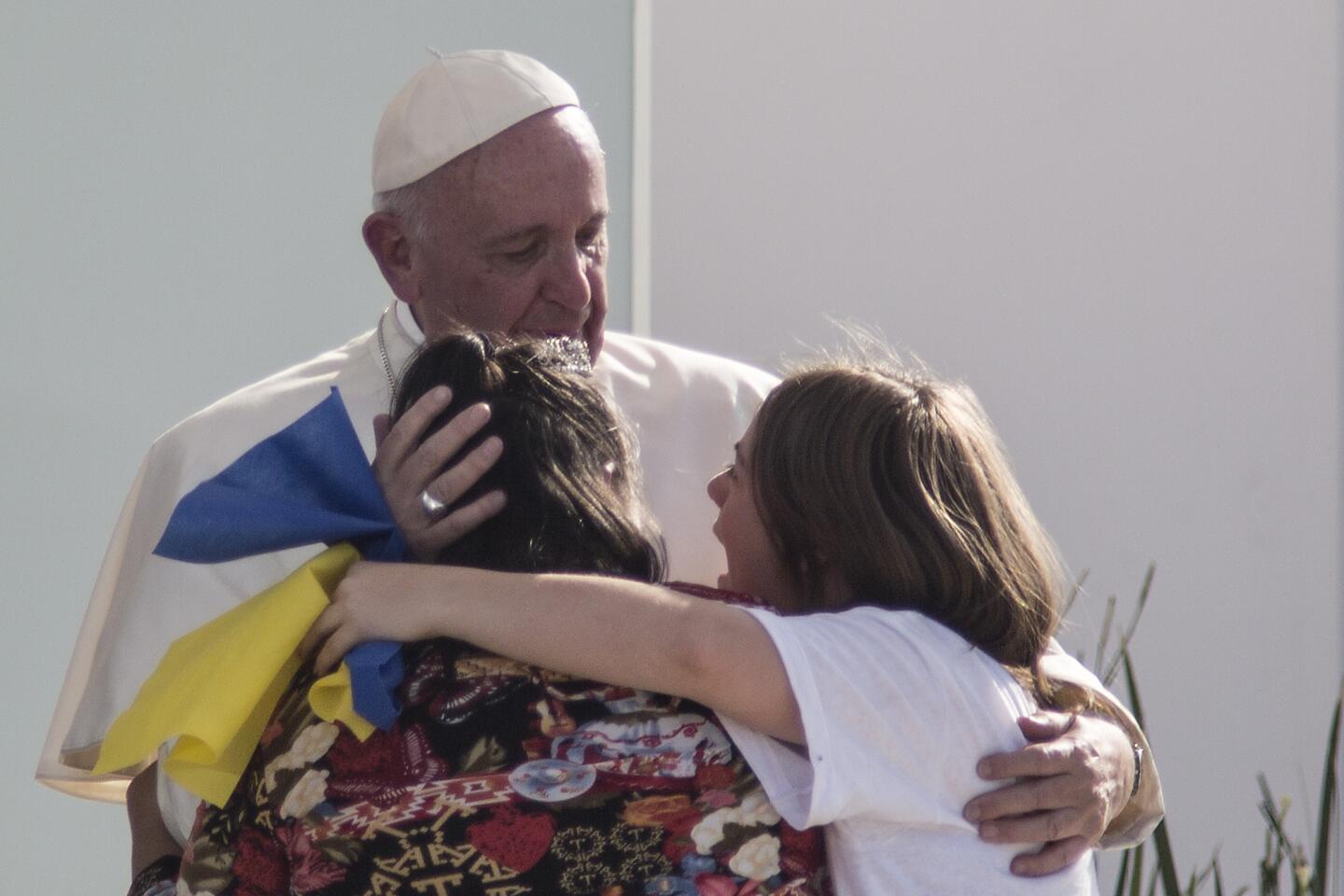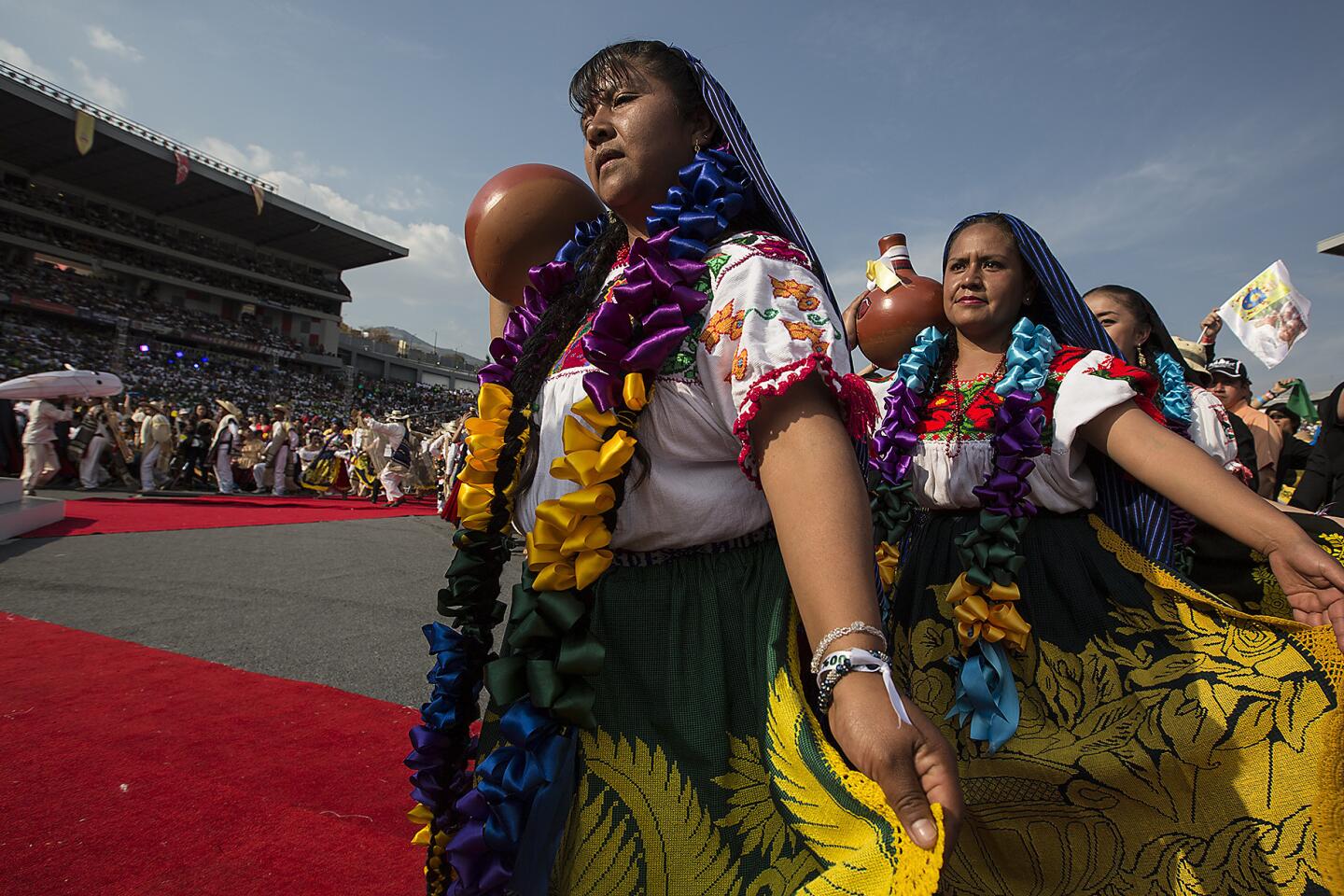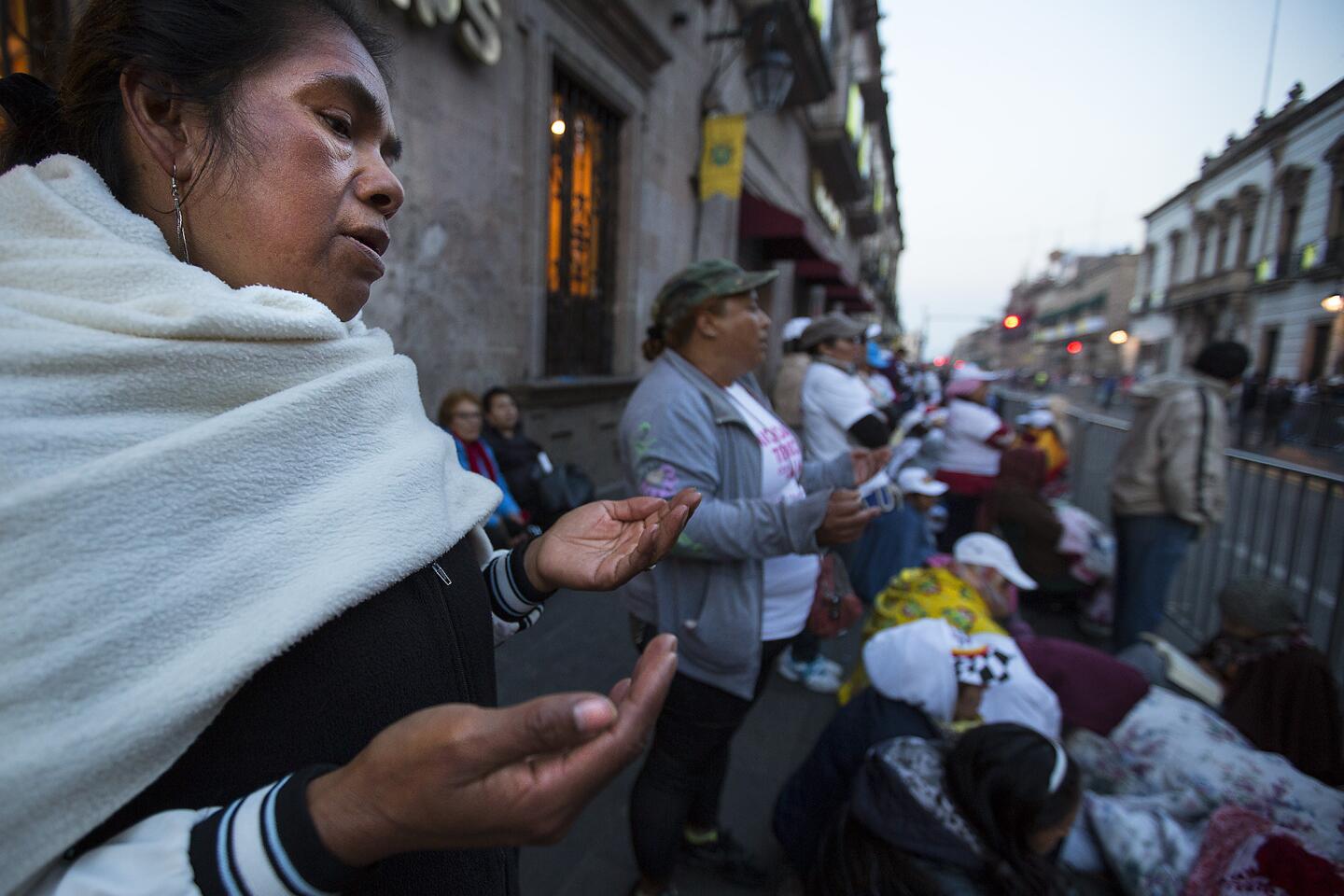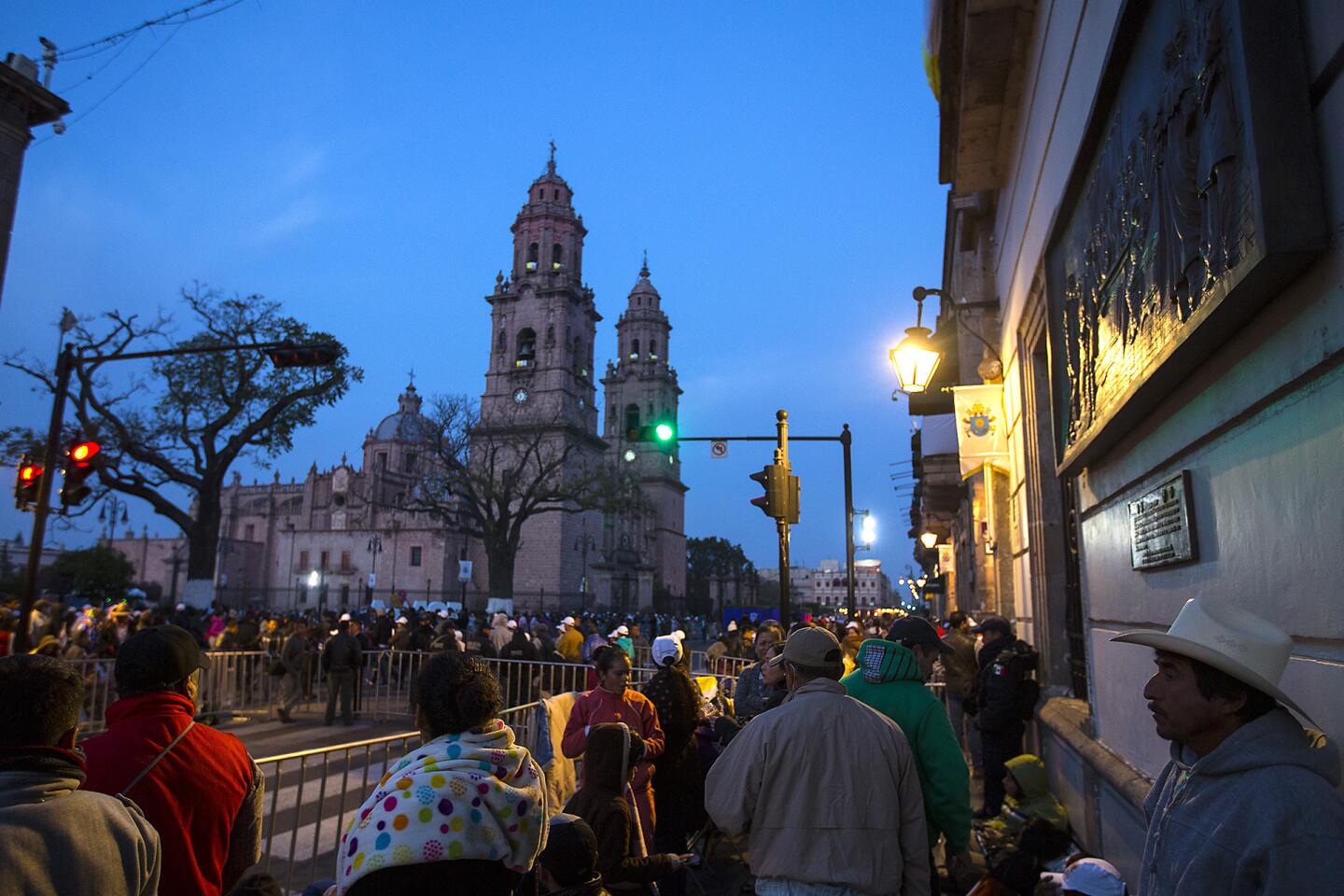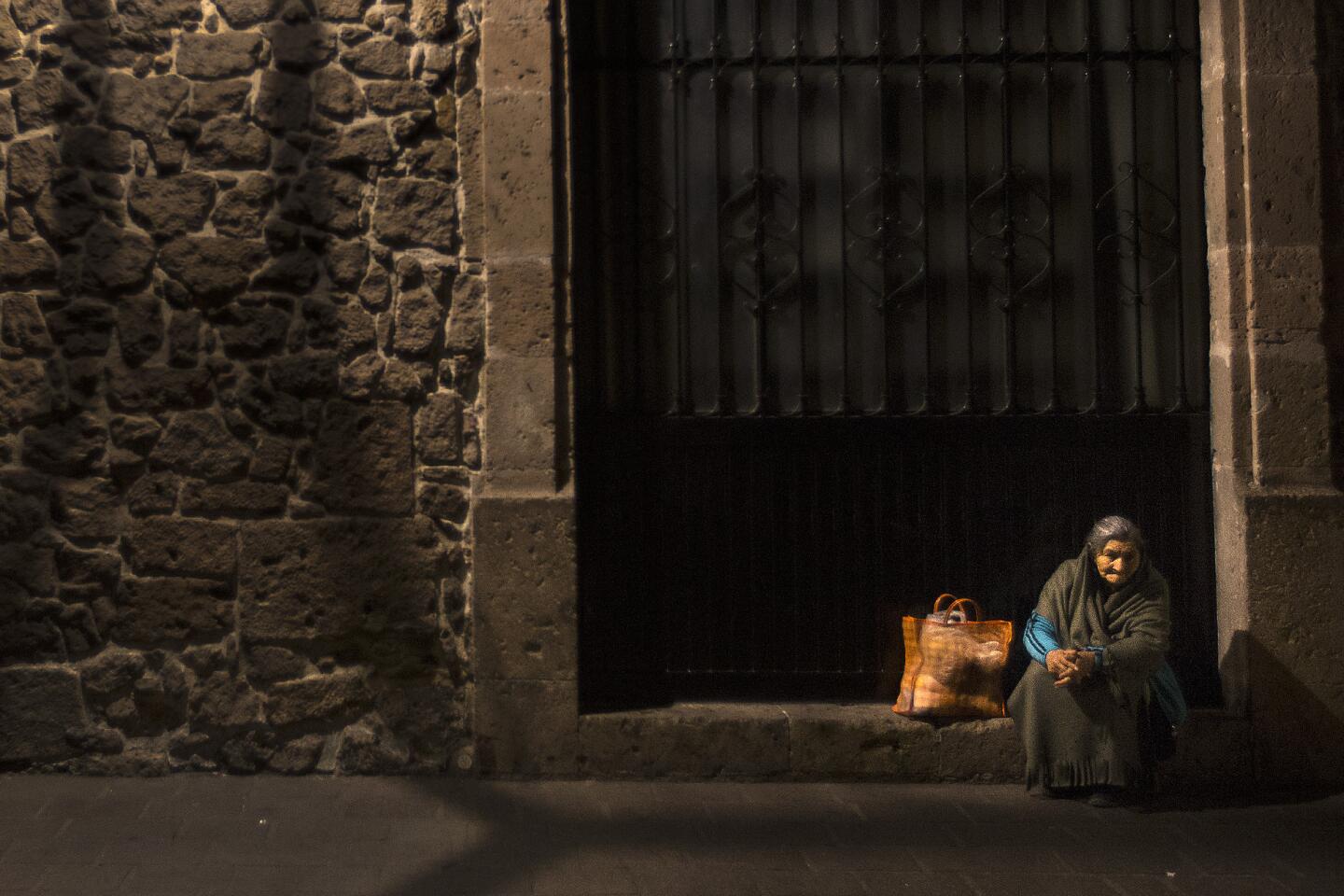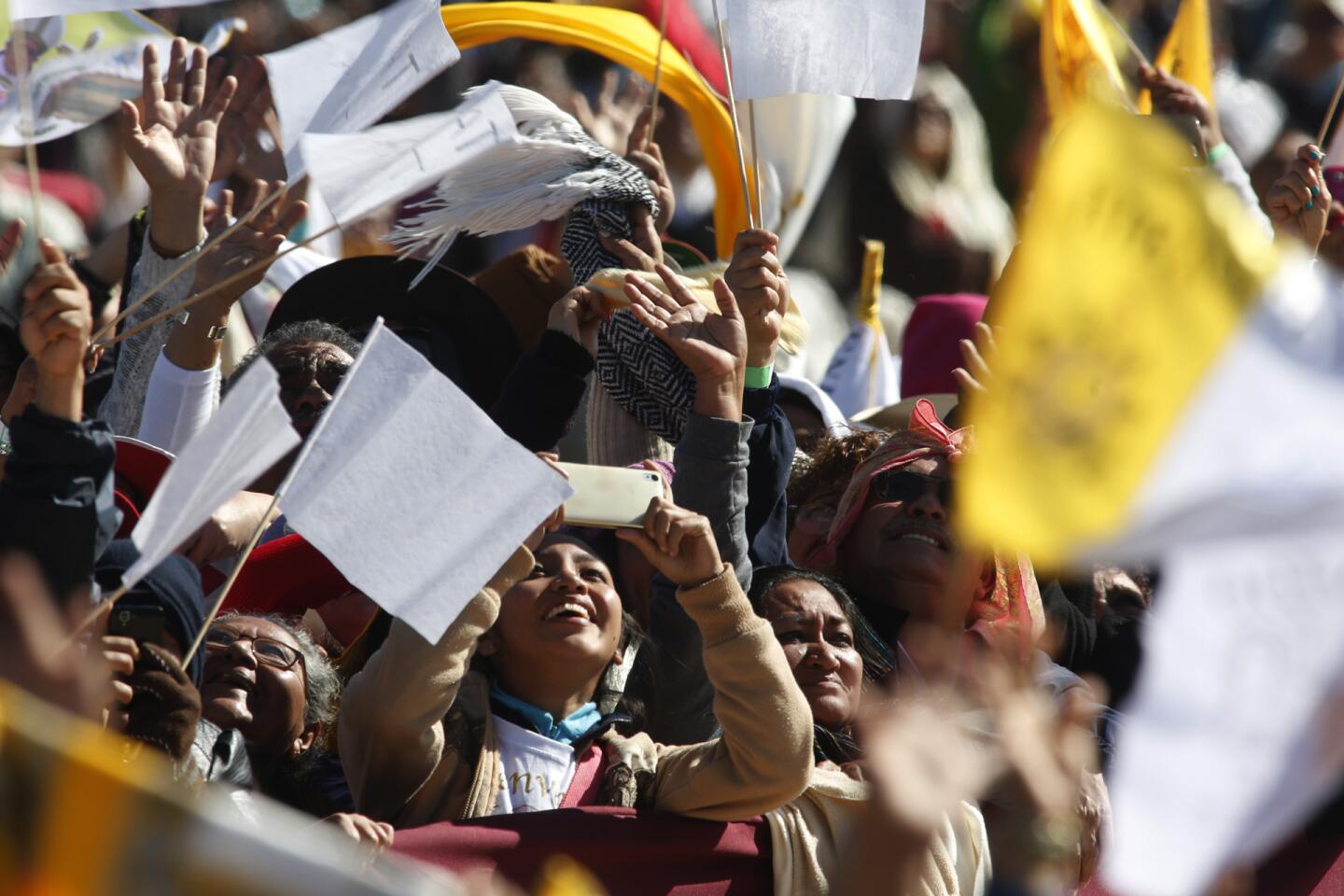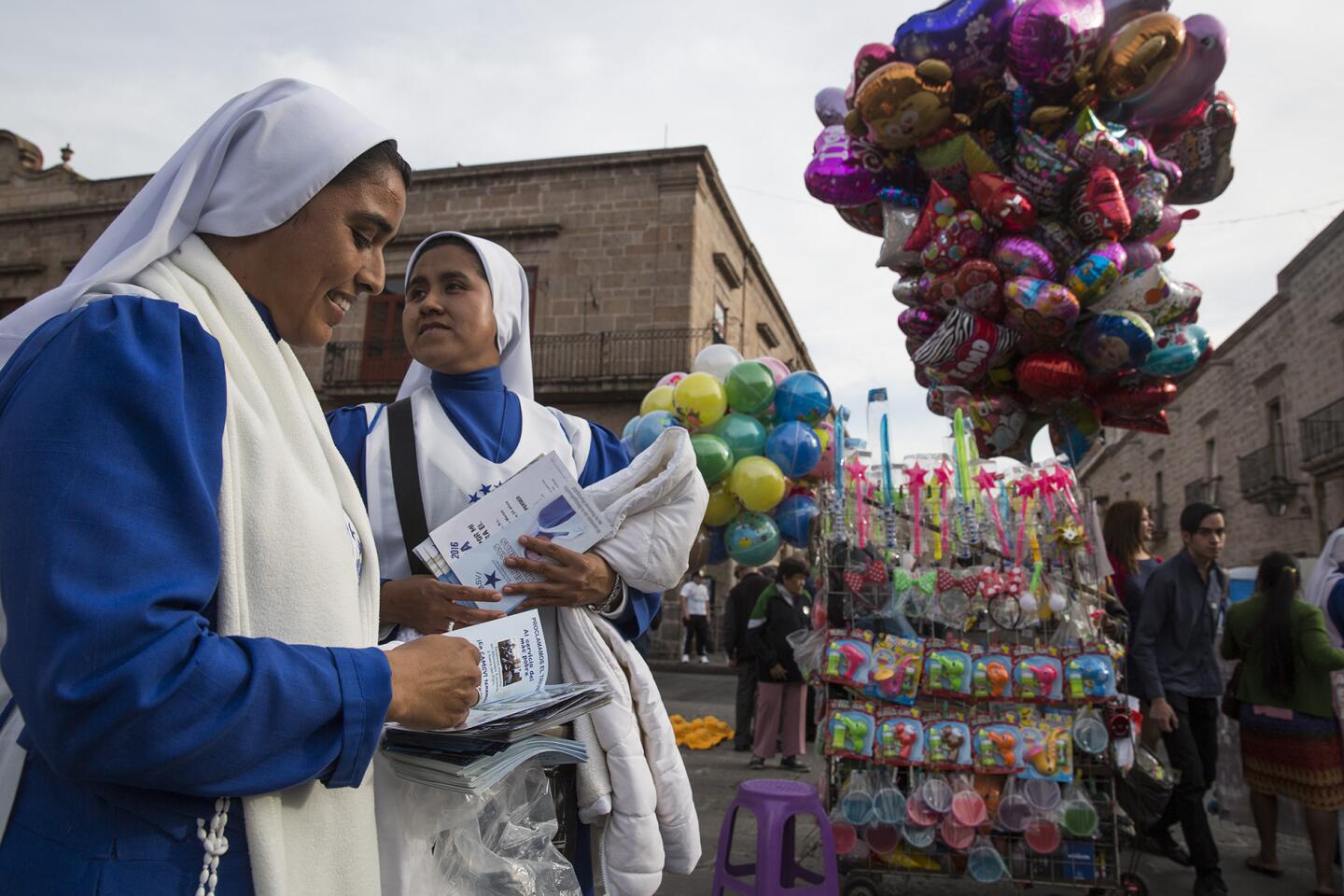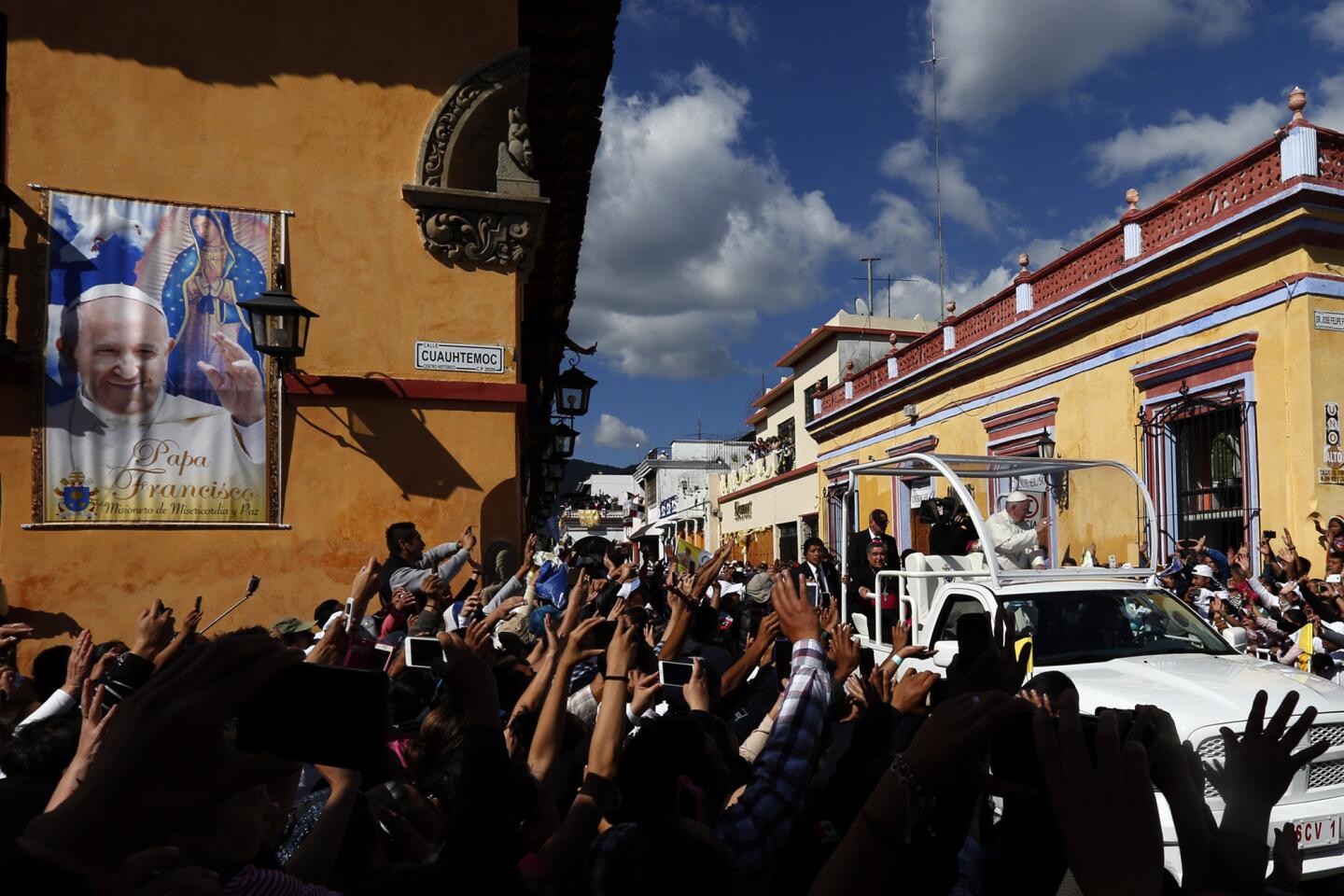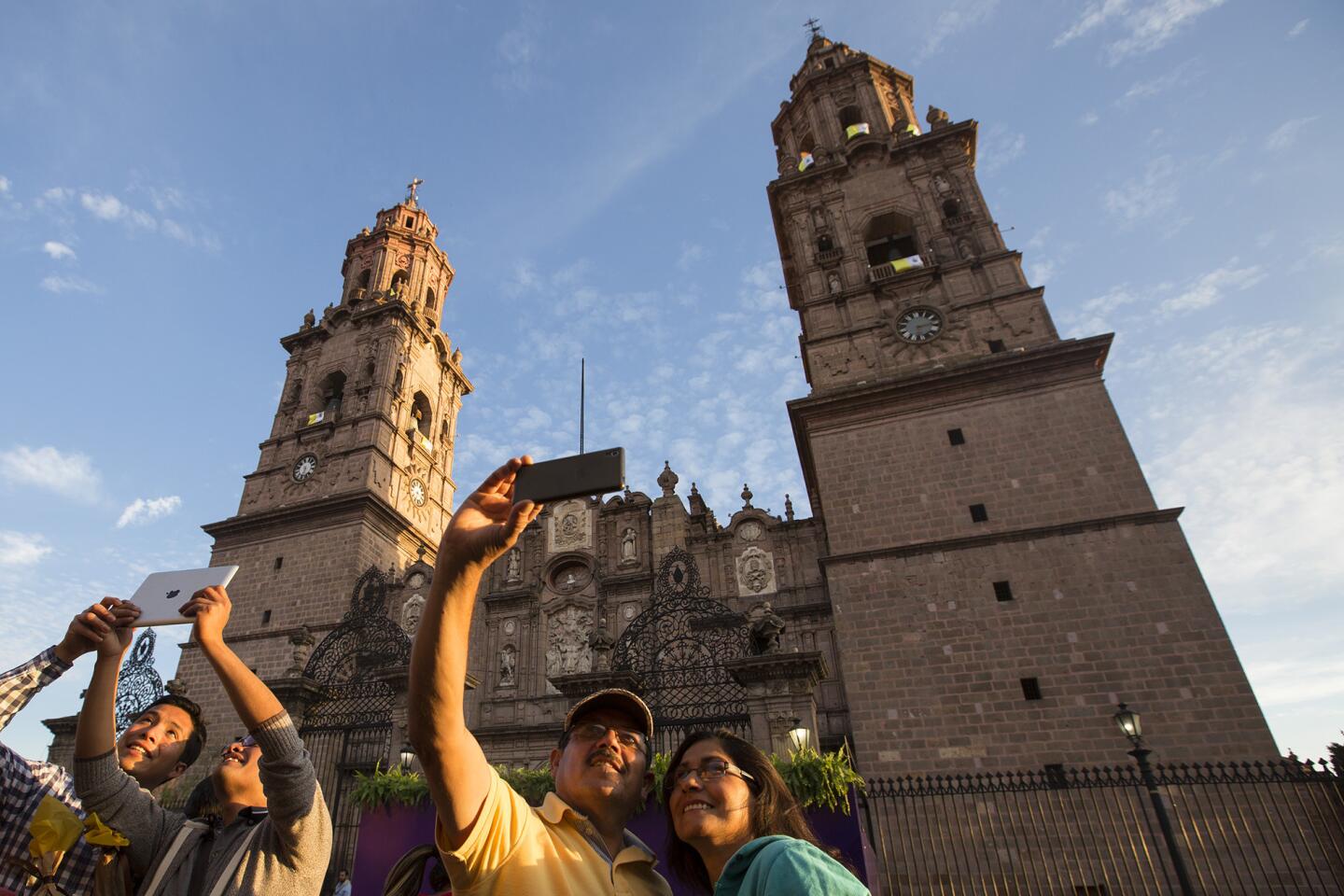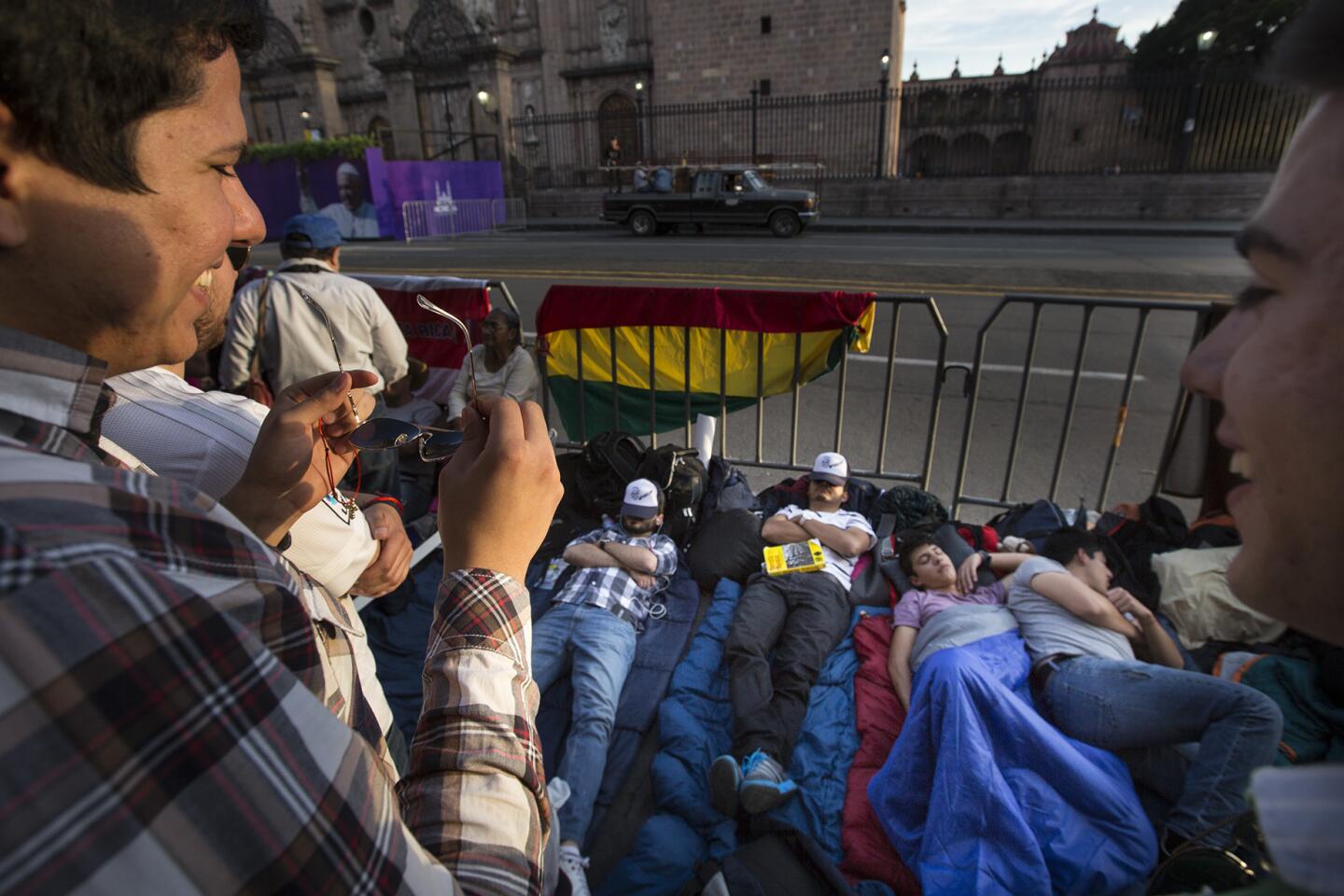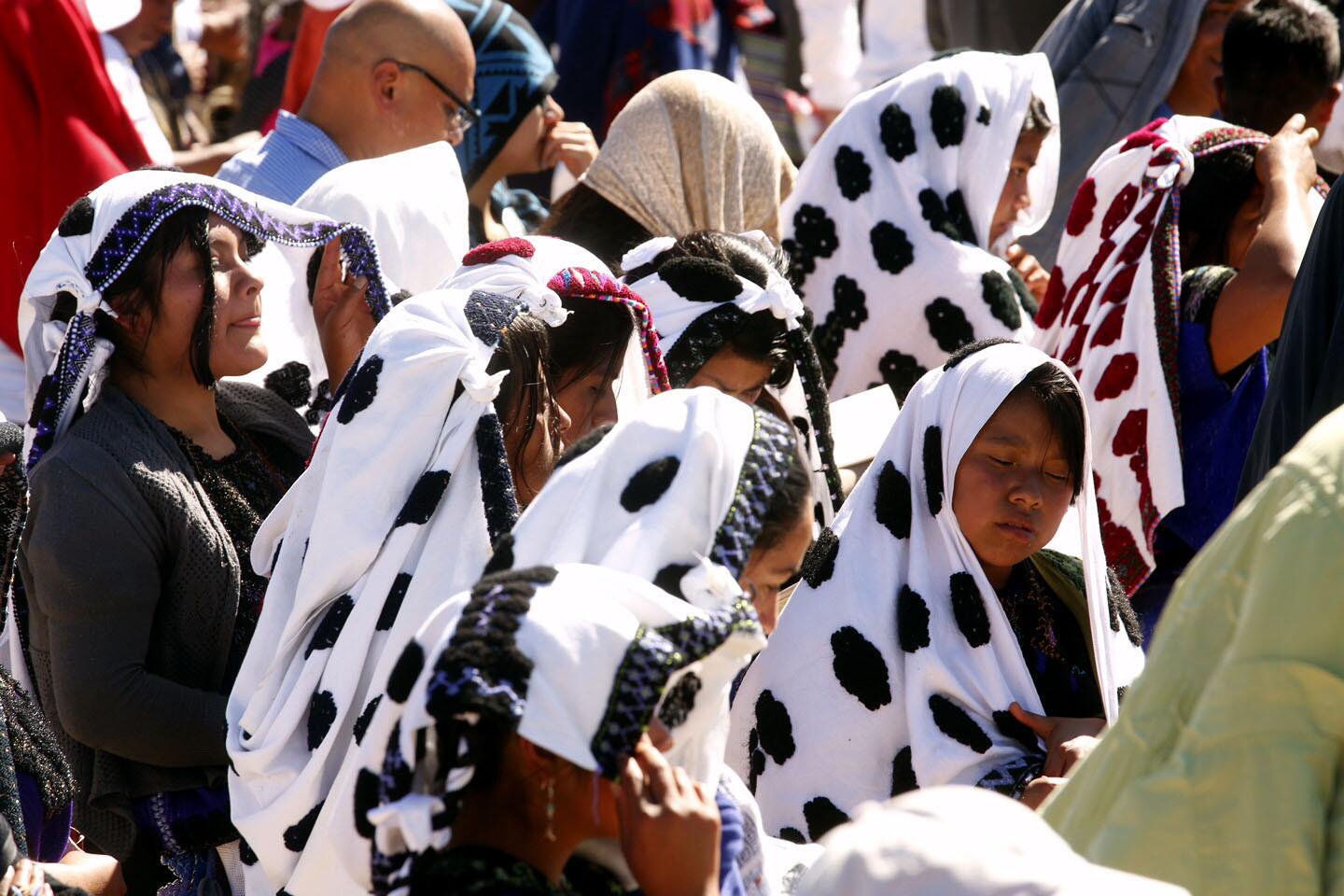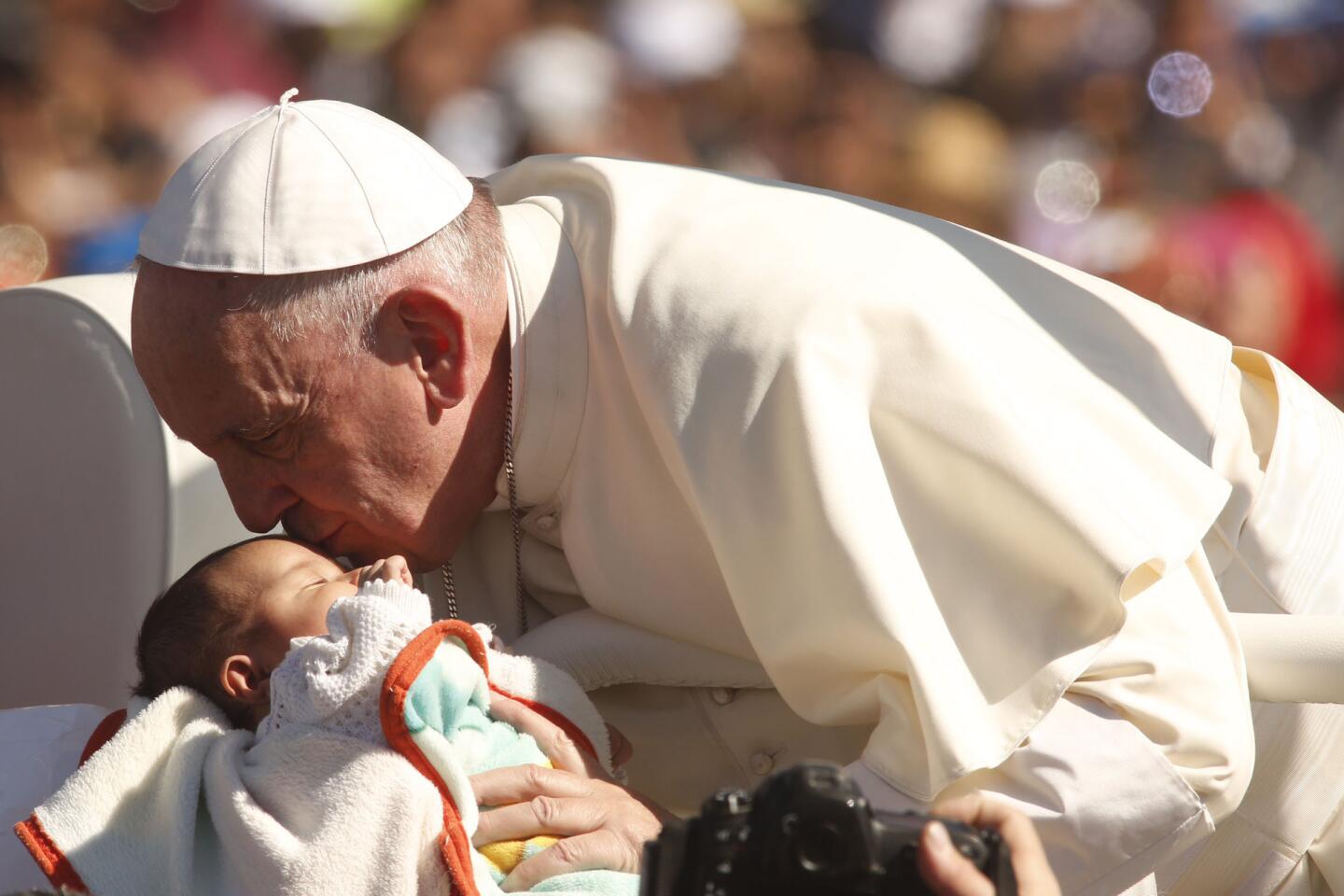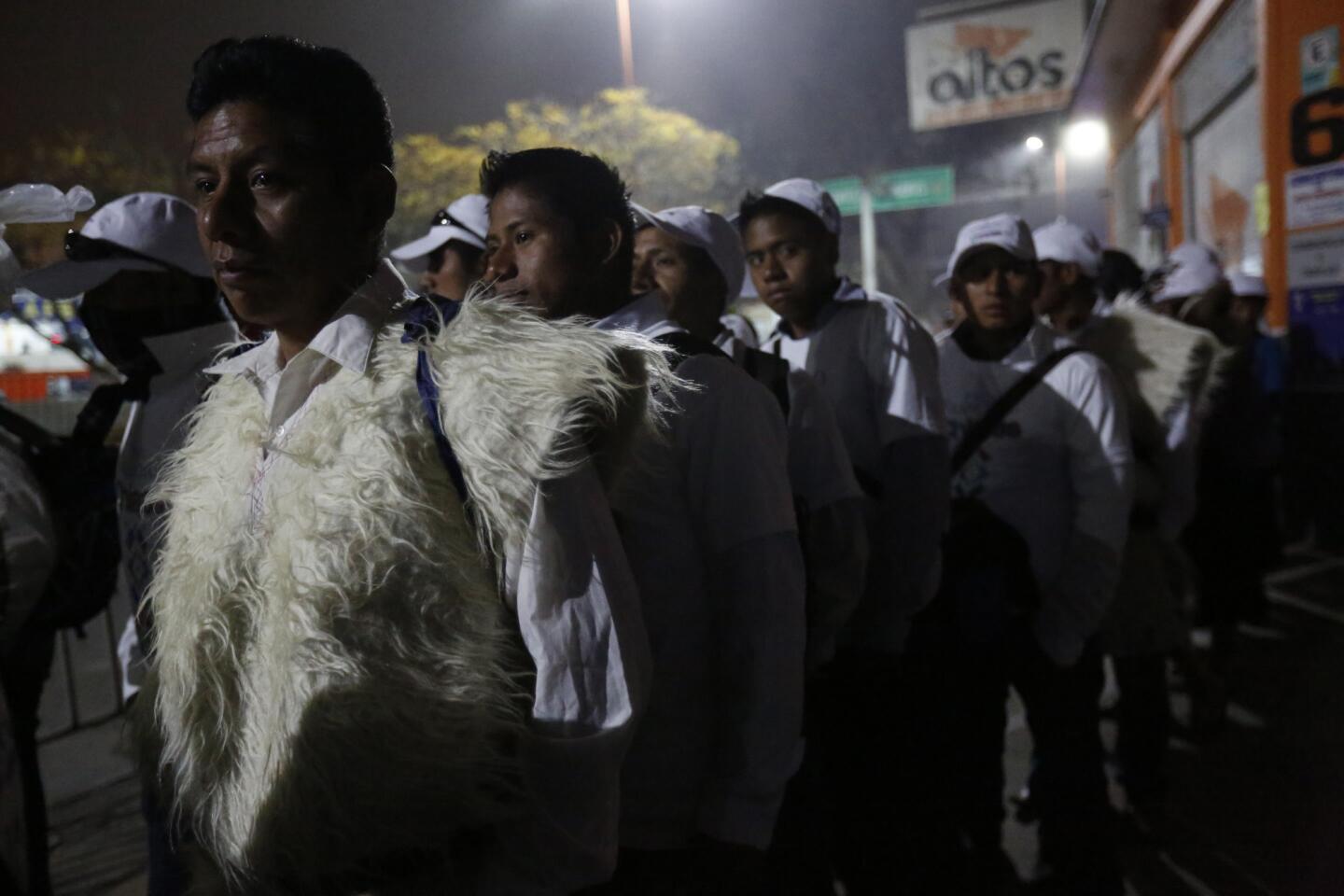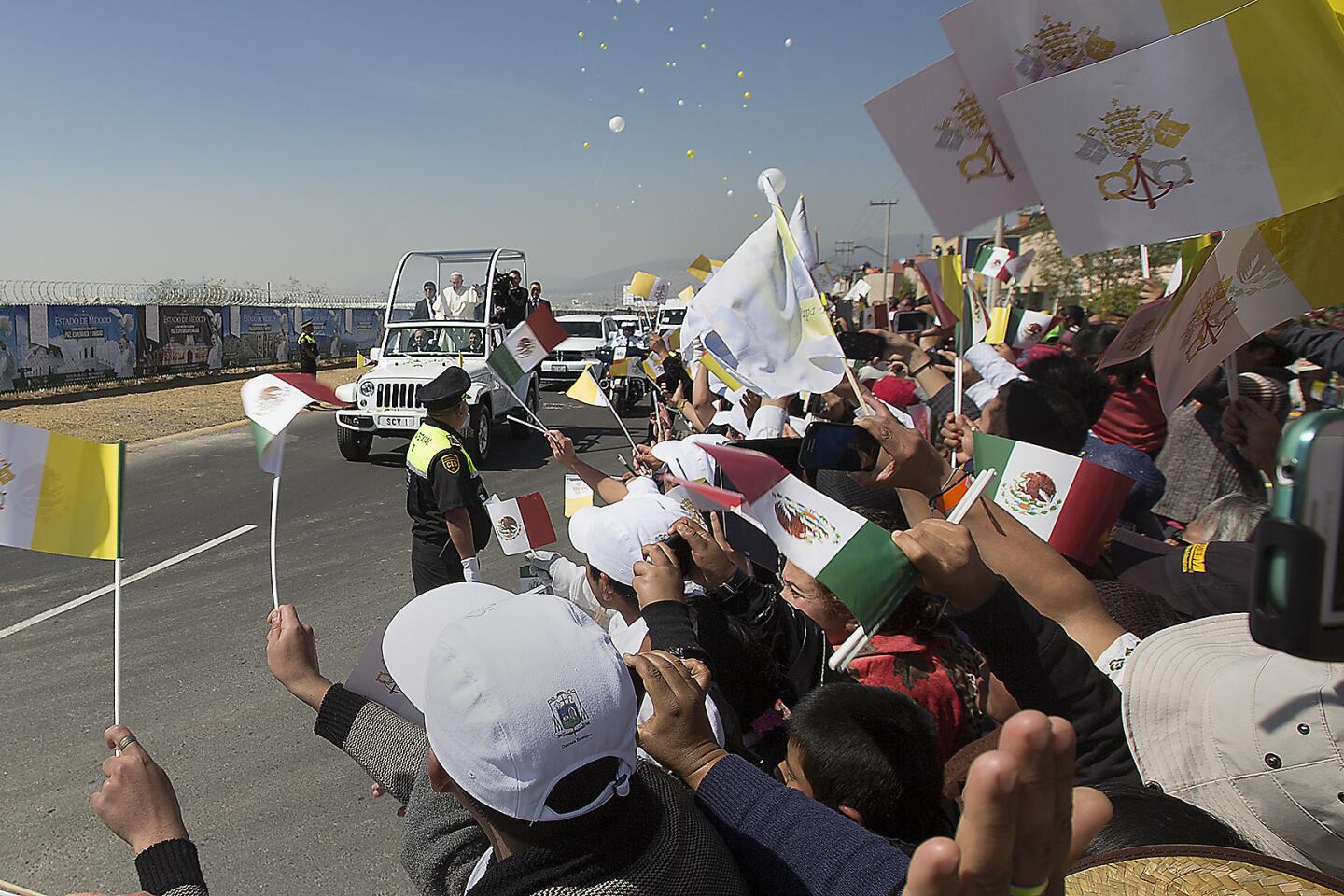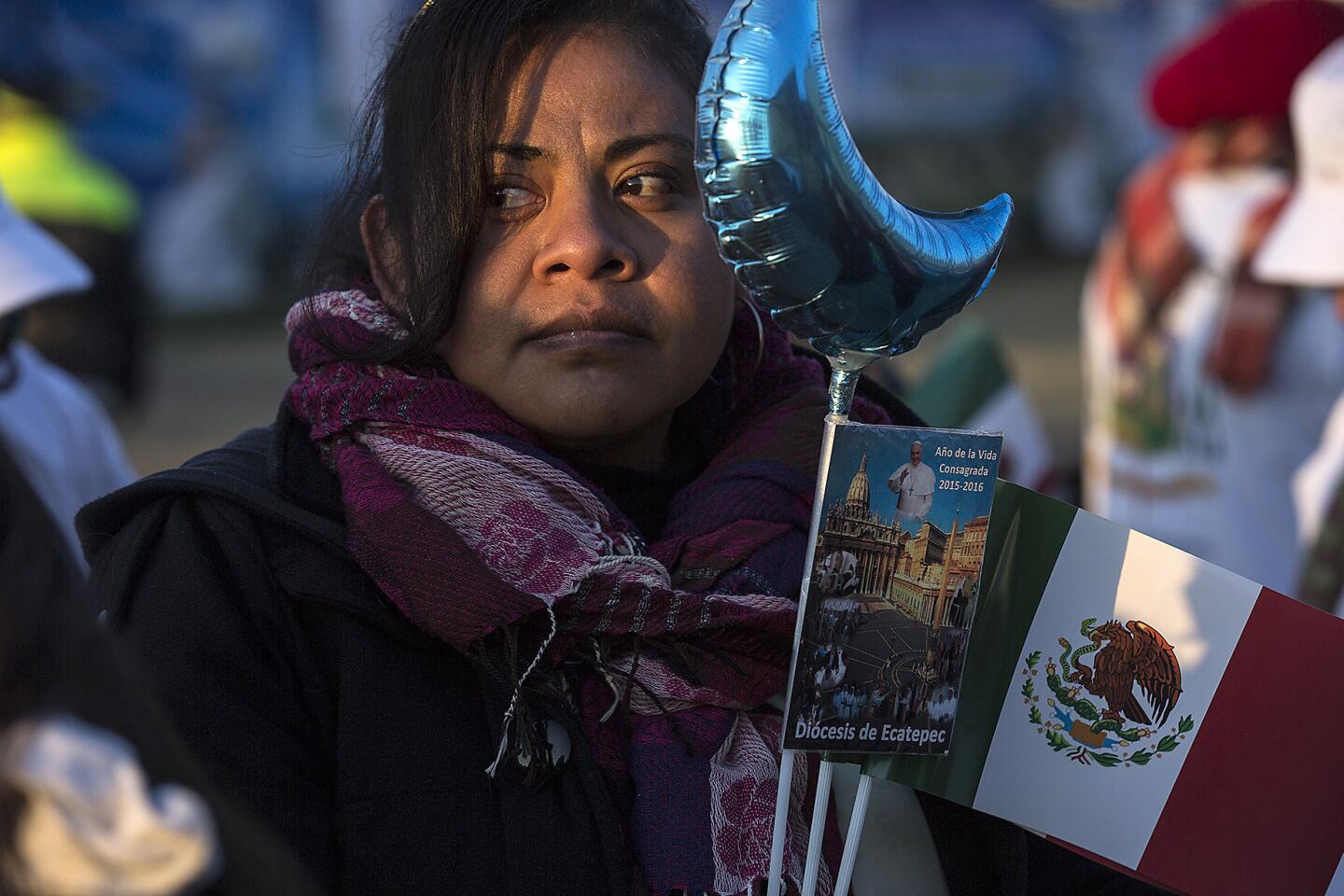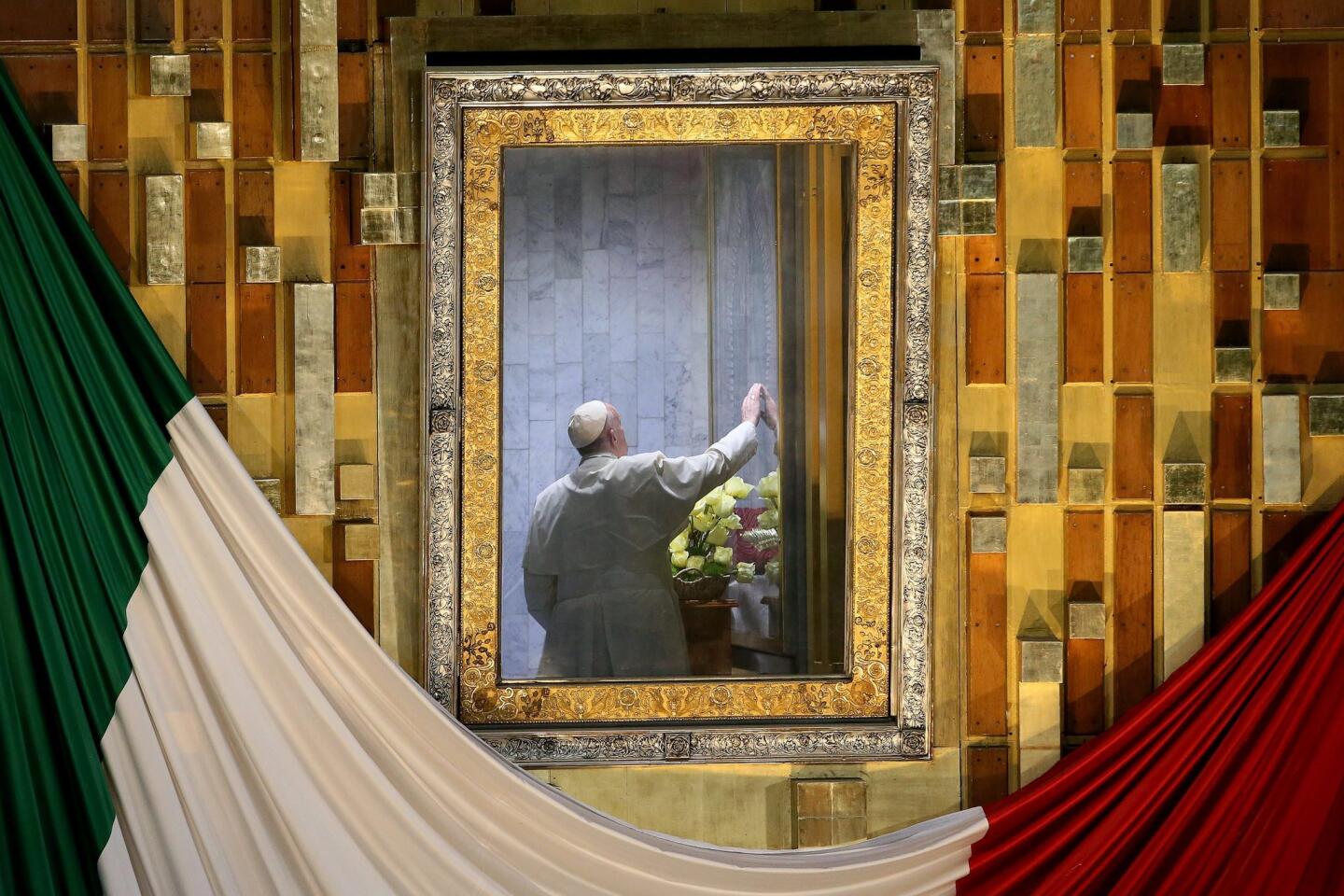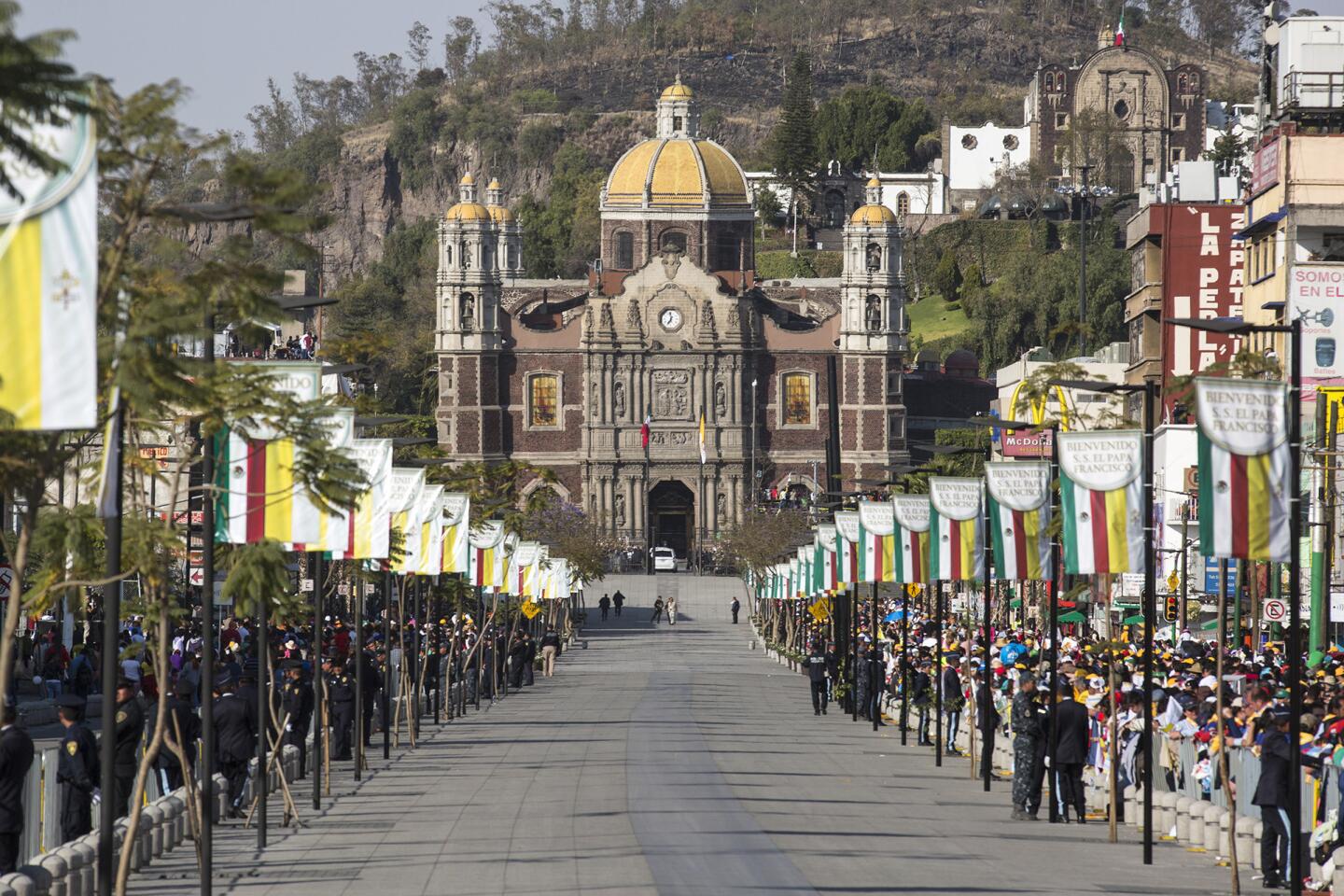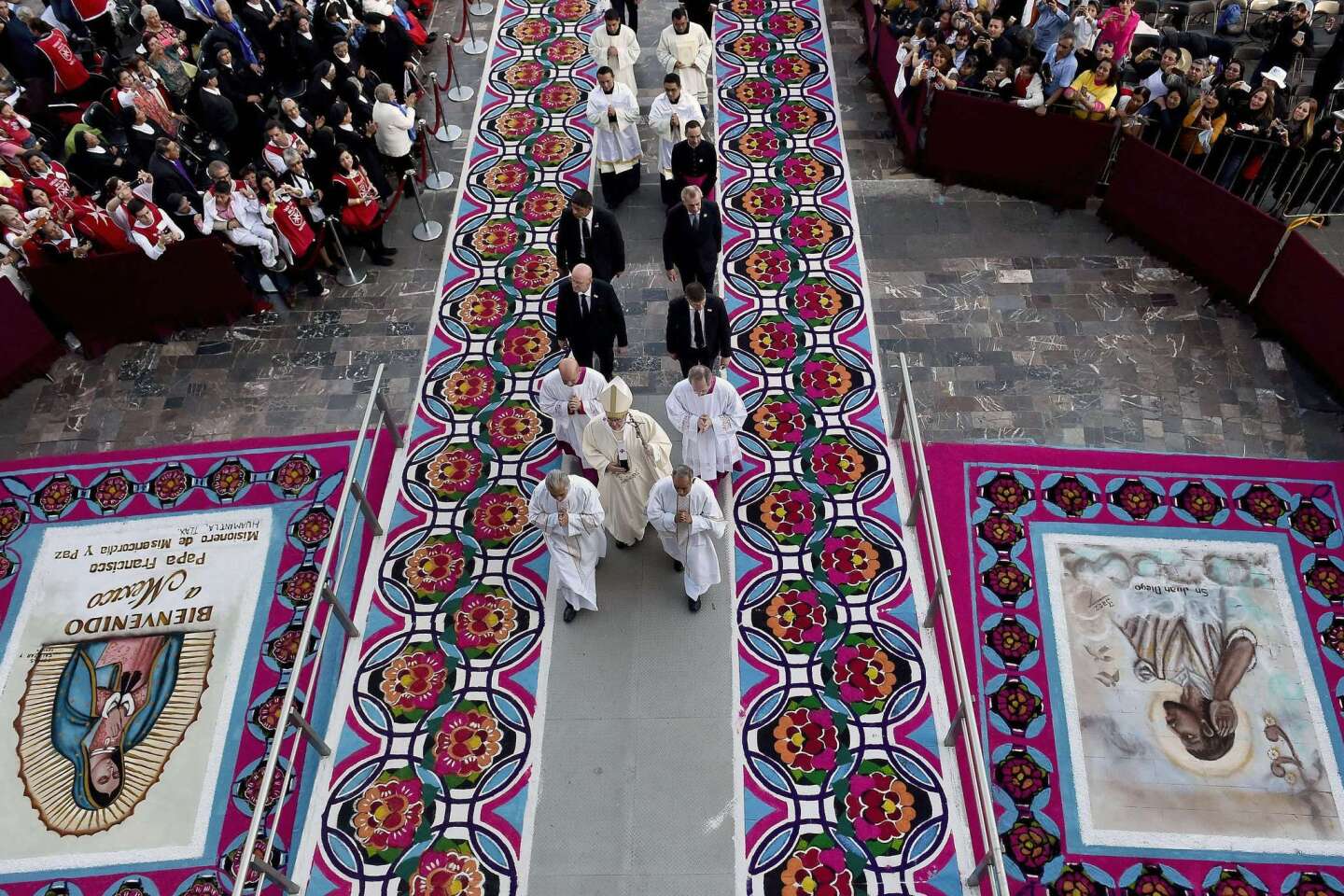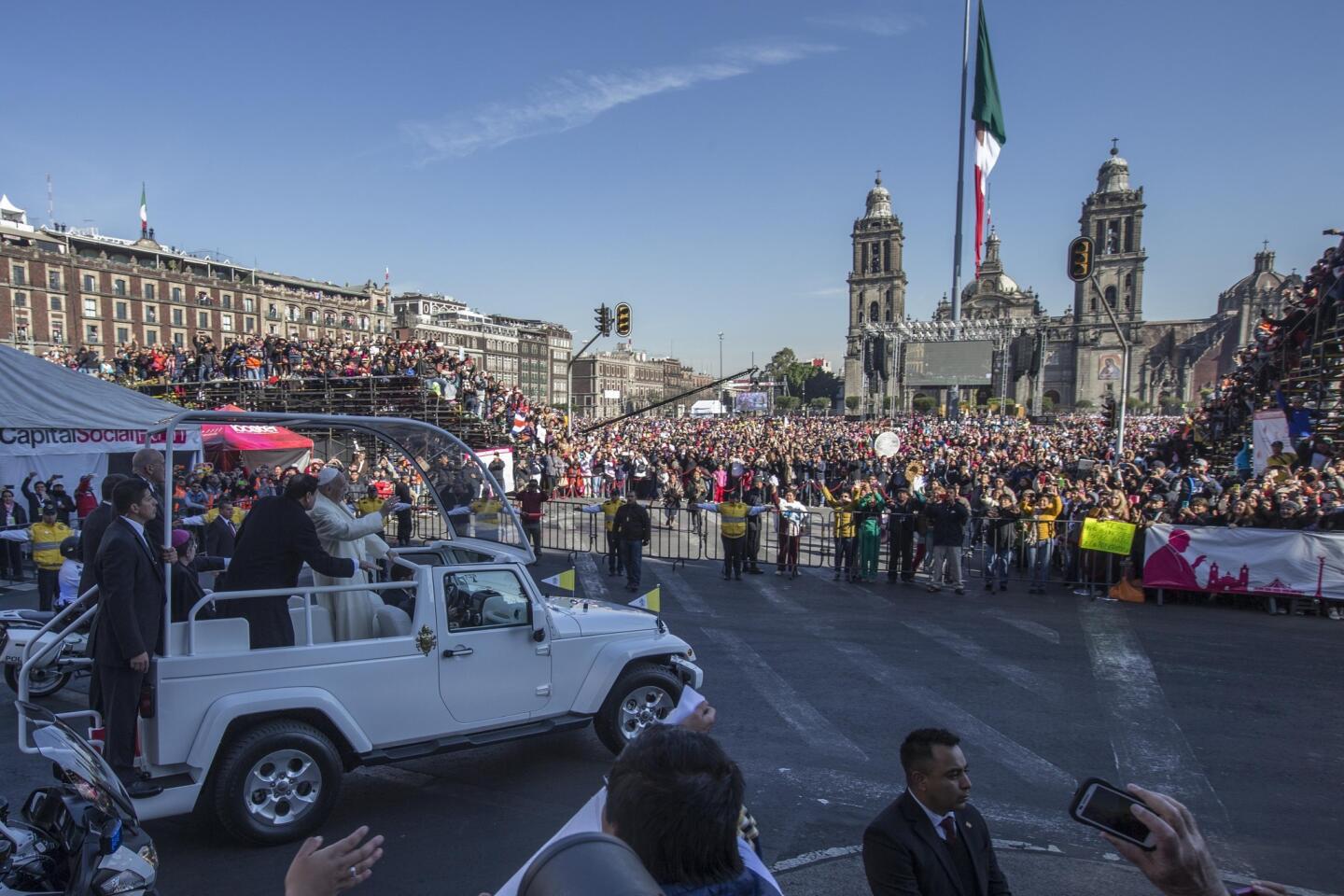The Catholic Church and the irresistible power of Mexico’s narco culture
- Share via
Reporting from MORELIA, Mexico — Growing up Catholic in Michoacan state, Alberto Cornejo always marveled at the beauty of the Gothic cathedral in his hometown of Zamora. He watched as workers installed spires, repaired the aging pillars and kept the floors polished.
The constant care and remodeling cost a lot of money and not all of it, he’s convinced, came from legitimate sources. “Narcos have looked out for our pueblos and our churches,” said Cornejo, a 48-year-old cellphone salesman. “It shouldn’t be, but it’s the reality.”
That belief, true or not, is widespread in parishes large and small across the country. Confronted with the expansion of organized crime groups, Catholic Church leaders have faced tough choices and more than a few have given in to traffickers, either cowed or complicit in taking tainted money.
Live updates: Pope Francis takes his message to a front line of Mexico’s drug war
Pope Francis, who travels on Tuesday to the violent state of Michoacan, has during his Mexican trip made his feelings clear, most specifically on Saturday during a speech in front of top church bishops, in which he called on clergy to act courageously against an “insidious threat.”
“I urge you not to underestimate the moral and antisocial challenge which the drug trade represents for Mexican society as a whole, as well as for the church,” he said.
The pope’s challenge – an upbraiding of an institution rarely criticized – was hailed for recognizing the widespread perception in Mexico that the church has often failed to protect society and its own priests from drug violence.
Some clergy seemed to soften what was widely perceived as a tough speech, though they emphasized their commitment to heed the pontiff’s message. “It wasn’t a scolding, in no way; all the contrary, it’s profound motivation, a beautiful thought…. It fills our hearts with great desire to work,” Carlos Aguiar Retes, the archbishop of Tlalnepantla, a suburb of Mexico City, said in an interview with the Mexican newspaper El Universal.
The mixed reactions of some clerics, some experts said, suggest they remain tone-deaf to the church’s aloof and uncaring image. The pope’s message was loud and clear, they said, and should not be ignored.
“I don’t think anyone has dared to criticize the Catholic Church so vocally and so openly in recent times. And arguably it could have only come from the pope himself,” said David Shirk, director of the Justice in Mexico Project at the University of San Diego. “The church’s leaders have basically rested on their laurels, and in the worst cases have been as corrupt as the rest of Mexico’s political leaders.”
NEWSLETTER: Get the day’s top headlines from Times Editor Davan Maharaj >>
Among those most ill-served are the church’s clergy, reflecting the deep divide between the hierarchy in the largely insulated political power centers of Mexico City and Guadalajara, and the hundreds of parishes on the front lines of the drug war.
Local priests who have taken on drug traffickers in recent years often struggle in relative obscurity, offered little help or recognition from church leaders. Gregorio Lopez, a priest in Michoacan, took to wearing a bulletproof vest while saying mass. Father Francisco Gallardo had to cut back his aid to migrants after cartel thugs threatened him in Matamoros. Many other priests have publicly criticized, in the media and ecclesiastical letters, organized crime groups.
Alejandro Solalinde, a firebrand priest who runs a migrant shelter in Oaxaca, travels with three bodyguards after receiving death threats from human traffickers. Solalinde said there are support networks of local priests, bishops and Catholic lay organizations, but he laments that their efforts are largely ignored by the top church brass in Mexico City.
“They never gave me support, not even words of inspiration: ‘We’re with you, Father Solalinde.’ I would have loved that,” Solalinde said.
Speaking out comes with a high cost for some clergy. Since 1992, 35 priests in Mexico have been killed, making Mexico the second-most dangerous country in Latin America for priests, according to a recent report by the Catholic Multimedia Center.
Beyond their parishes, the slain priests’ passing often goes unnoticed. “When a priest gets killed, it should be a rallying cry. We should know his name. He should be a martyr,” Shirk said.
The silence suggests a church compromised by drug traffickers offering soul-cleansing donations as well as by politicians applying pressure to downplay the violence.
Suspicions have long swirled over the practice of narco-donations. In some parishes, priests say Mass in churches or chapels bearing the names, on walls and pews, of notorious drug trafficker benefactors. Priests have taken money for dispensing sacraments and have been seen in public with traffickers.
There are signs things are changing, especially in Michoacan, where Archbishop Alberto Suarez Inda of Morelia, who was named a cardinal by Francis in 2015, urged the government in recent years to increase its presence in the violence-racked state.
At Morelia’s historic central plaza, many Catholics expressed mixed feelings about the church, a deep love mixed with disappointment and also understanding. Luz Adriana Lujan, a 29-year-old visiting from Tijuana, said she doesn’t doubt there’s some level of collusion between the church and narco-traffickers.
“It’s terrible,” she said. “But the devil is everywhere and I think leaders of the faith are more vulnerable, because the devil targets them. So, of course, some will fall.”
Follow Richard Marosi on Twitter.
Follow @marisagerber on Twitter.
ALSO
Pope Francis offers a prayer at tomb of controversial Mexican bishop
Families reunite at U.S.-Mexico border fence: ‘We touch hands, but it is like being in jail’
In a Mass in Chiapas, Pope Francis denounces the exclusion of Mexico’s native peoples
More to Read
Sign up for Essential California
The most important California stories and recommendations in your inbox every morning.
You may occasionally receive promotional content from the Los Angeles Times.
